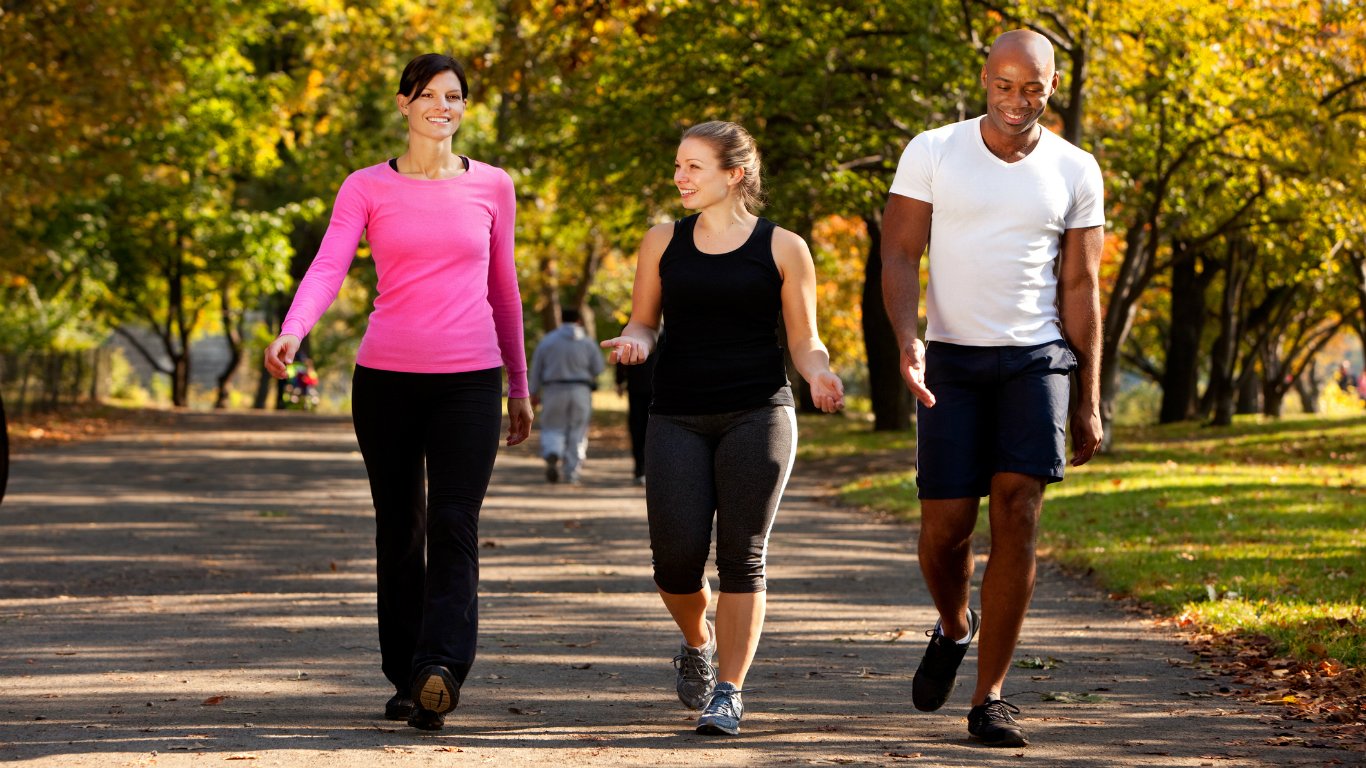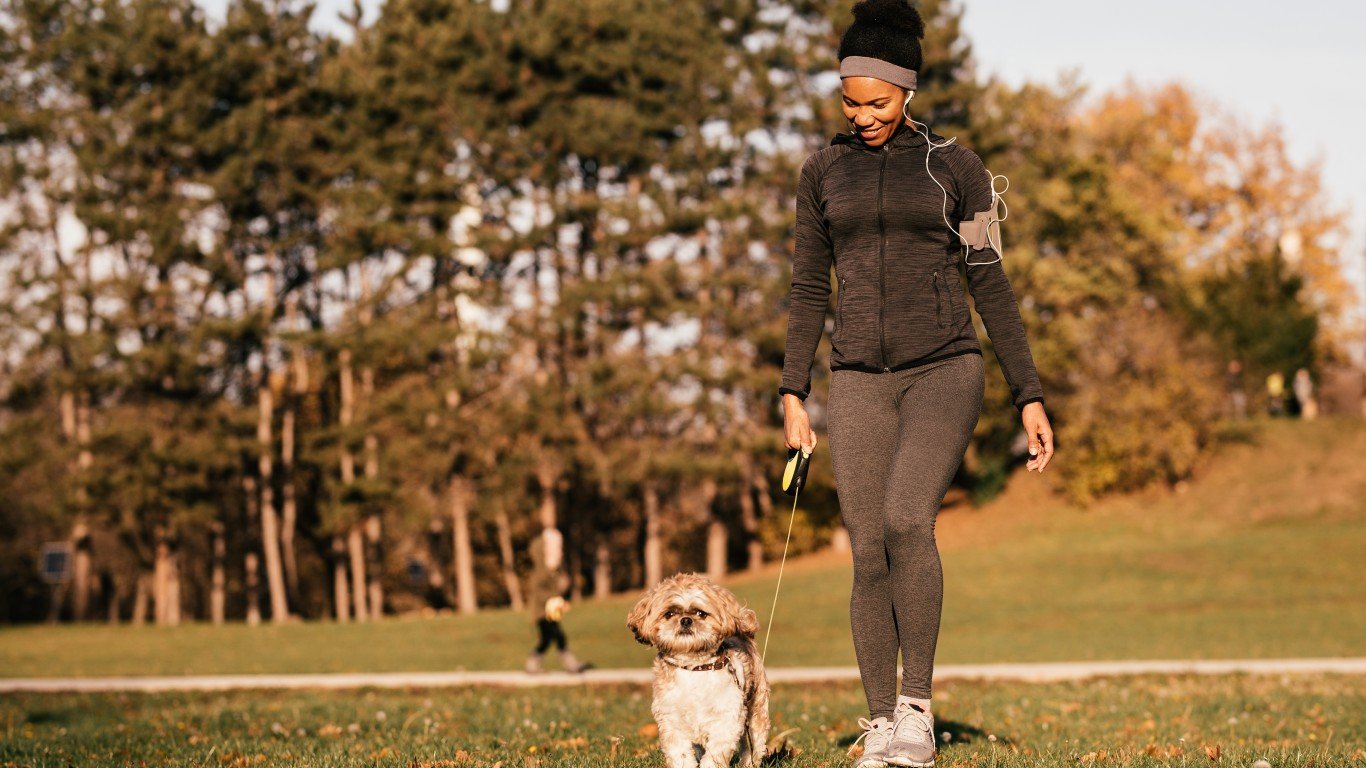

With the United States still in the grip of the coronavirus pandemic, it has been a challenge for Americans to maintain healthy habits. Many parks and public gathering places were closed and gyms shuttered.
As the country was beginning to ease social distancing measures, with people returning to work, and businesses slowly reopening, 24/7 Tempo compiled a list of 50 easy ways to be a healthier person. We reviewed materials from various health care publications and sources such as the Centers for Disease Control and Prevention.
Click here to see 50 easy ways to be a healthier person
Many have used the lockdown and order to work from home as an opportunity to exercise when and where they could, develop cooking skills, find outlets to relieve stress, and live a more healthy lifestyle.
In addition to self-help efforts, people have used the time at home to catch up on matters around the house that had been neglected that can also help improve a family’s health, such as changing bed sheets more often and, replacing toothbrushes more frequently, and making sure the temperature of the bedroom is conducive for a good night’s sleep. This is what you should do for a better night’s sleep.

Eat your non-starchy vegetables
People with underlying health conditions such as diabetes — and really all of us — should eat non-starchy vegetables, whether they are fresh, frozen, or from a can, because they are full of full of vitamins, minerals, and fiber. If you are going to eat these vegetable frozen or canned vegetables, look for items low in sodium and fat.
[in-text-ad]

Go for a walk every day
With the pandemic forcing many people to stay at home, more and more of us have the time to walk, and many of us have made it part of our daily routine. Walking 30 minutes a day helps improve your balance, strengthen bones, reduce risk of heart disease and stroke, and trim body fat. It also can provide a social outlet — even with social distancing. Be sure to wear comfortable footwear and warm up before walking.
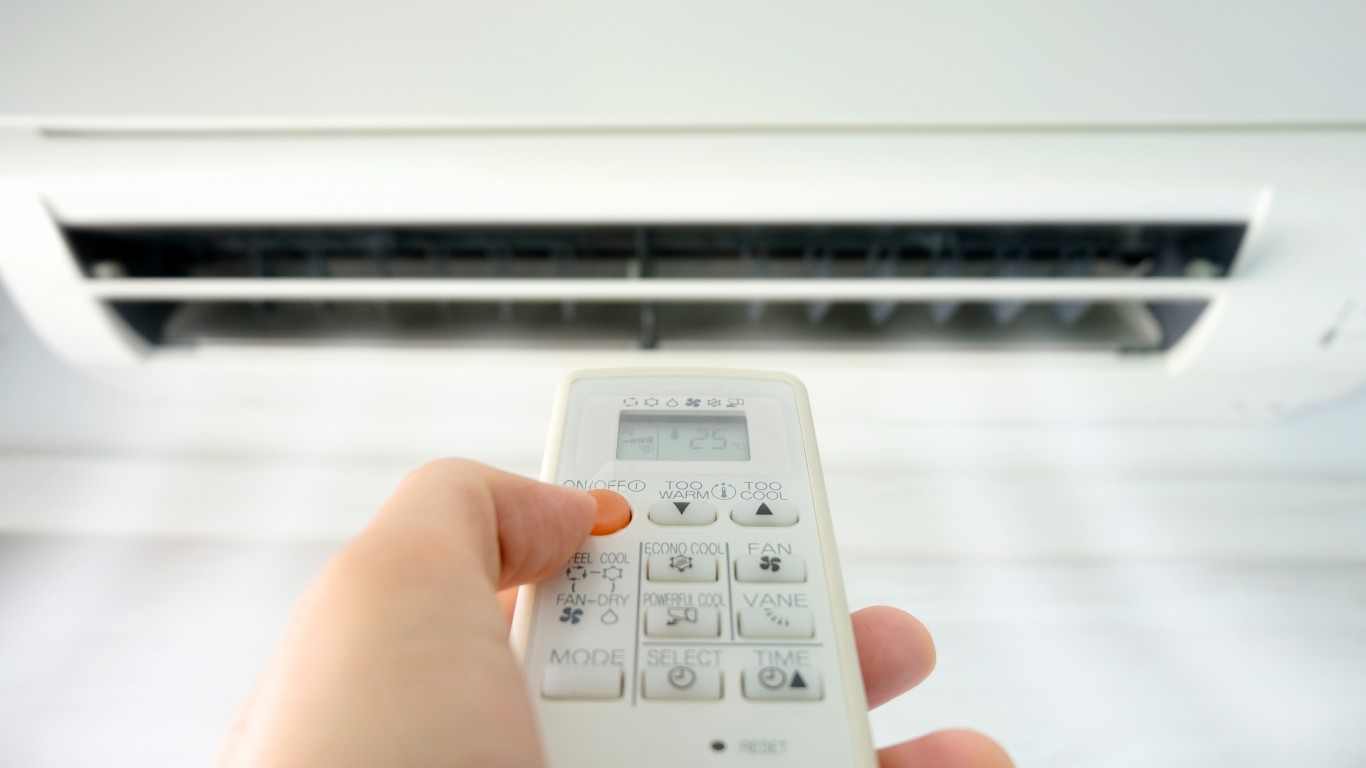
Make the bedroom cool at night
Cooling down your bedroom will help you sleep better. Dr. Kent Smith of Sleep Dallas, a dental sleep medicine practice, and president of the American Sleep and Breathing Academy, said in an interview to 24/7 Tempo, “The body is designed to sleep better at cooler temperatures. In fact, our temperature naturally drops in the evening to prepare us for sleep.” Smith said that for most people, the optimal sleeping temperature is between 60 and 67 degrees Fahrenheit.

Eat smaller portions
Portion sizes at many restaurants are enough for more than one person. Control your portion size by ordering an appetizer or a small plate instead of an entree, or by sharing an entree with a friend. Populate at least half your plate with vegetables, and replace starch on your plate with non-starchy veggies.
[in-text-ad-2]

Avoid sugary drinks
Daily consumption of sugary drinks such as soda and fruit juice increases the risk of conditions such as obesity, type 2 diabetes, and heart disease, according to Harvard University. Because the fructose in these drinks does not make the body feel full, soda drinkers tend to consume more total calories than those who do not drink soda. In a study published in the National Library of Medicine, a daily serving of sugar-sweetened beverages among children was associated with a 60% increased risk of obesity.
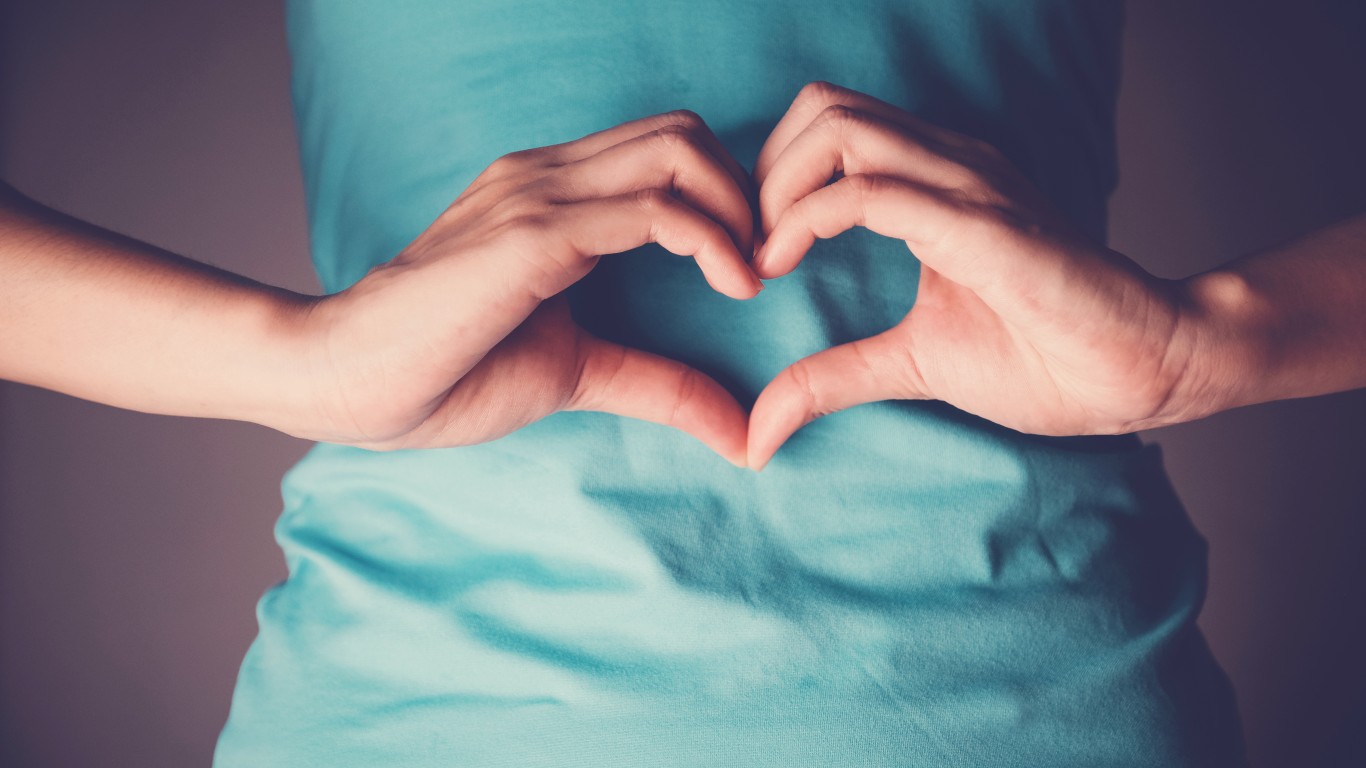
Tend to your gut health with fiber and probiotics
Probiotics work by decreasing the number of harmful bacteria in the intestines. They are mostly taken to improve digestion, but some research suggests they may also be helpful in treating skin conditions like eczema and even seasonal allergies.
A lot of research on probiotics, while promising, is still being done. Just as there are many different bacteria in a person’s gastrointestinal microbiota, there are many different types of probiotics, each with its own effect on the body.
[in-text-ad]
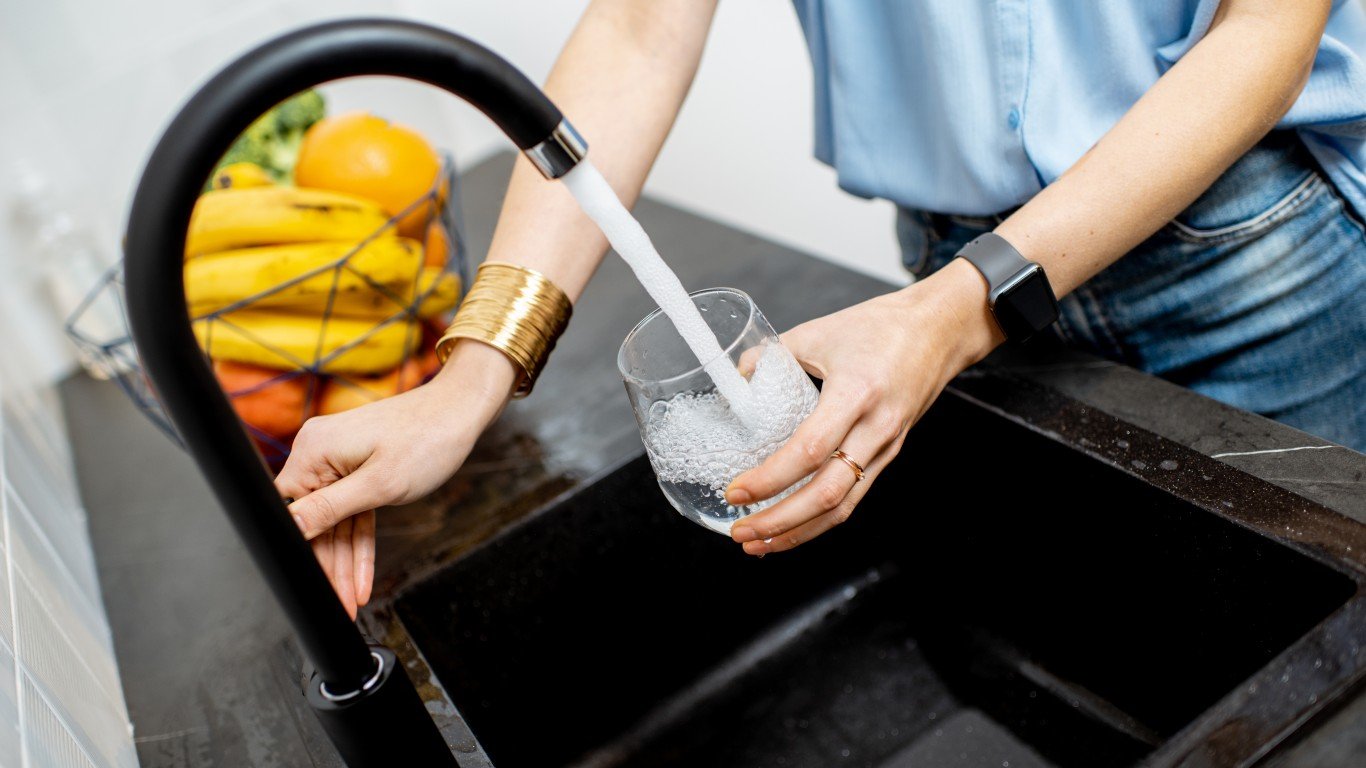
Drink water
Drinking water helps your kidneys function properly and helps prevent painful kidney stones, constipation, and dehydration. By replacing sugary drinks with water, you also reduce the risk of obesity.
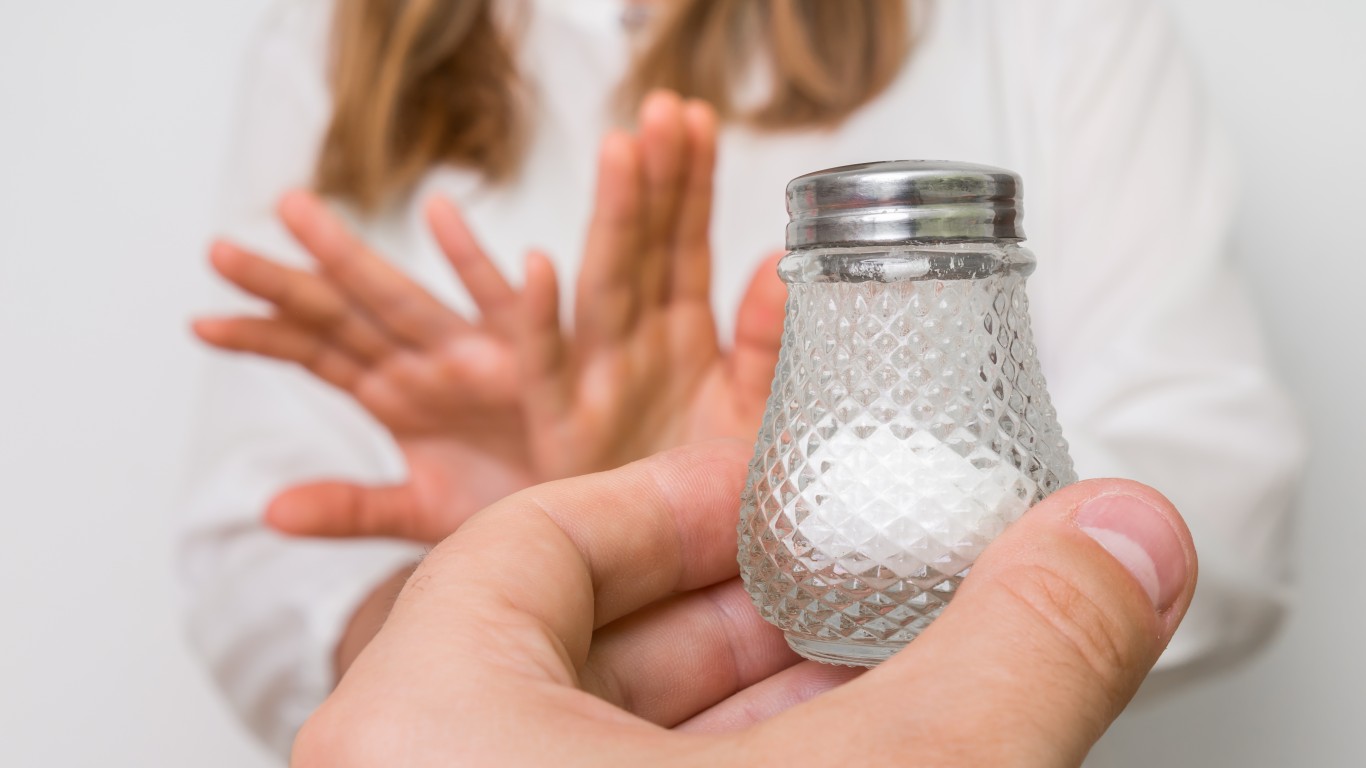
Eat less salt
High sodium intake can lead to high blood pressure and heart disease. Because most of the sodium we ingest comes from commercially prepared foods, as opposed to home-cooked meals, it is important to read labels on pre-packaged foods and monitor sodium intake.
According to the CDC, the top sources of sodium in American diets are breads, pizza, savory snacks such as potato chips and crackers, sandwiches, cured meats including lunch meat, soups, tacos and burritos, eggs, chicken, and cheese.

Keep healthy foods at home, so you don’t reach for junk foods
A 2018 study of online food choices suggests that unhealthy food options may have more of an effect on our health than healthy options. The researchers concluded that compared to adding healthier options, removing less healthy food options could have a greater impact on our health.
It is therefore a good idea to keep only healthy foods stocked at home and avoid bringing home junk food. A bowl of fruit, vegetables, and hummus, or a small amount of nuts within easy reach can more healthily fulfill snacking urges.
[in-text-ad-2]
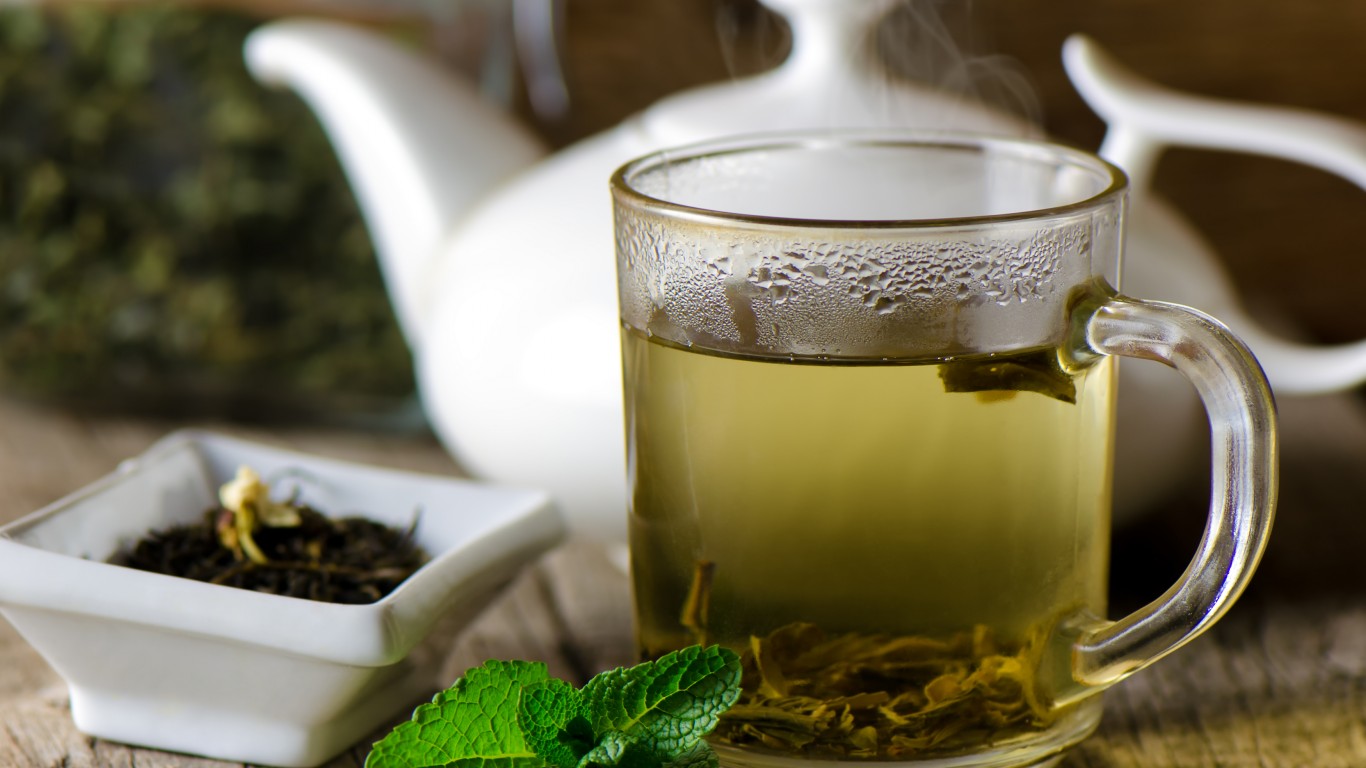
Drink green tea
Several possible health benefits of drinking green tea have been explored by health experts. Green tea has natural antioxidants that may help improve brain function; reduce fat; and lower the risk of some cancers and heart disease. Green tea also has polyphenols, a natural compound that may help reduce inflammation and lower cancer risk. Whether these compounds and antioxidants also work through drinking tea is still being explored.

Have a coffee break
Coffee is more than just a jolt of caffeine in the morning. Caffeine, when consumed in moderation, has been possibly linked to reduced risk of a number of diseases and conditions, including depression, Parkinson’s disease, multiple sclerosis, and Alzheimer’s disease, according to some research. Coffee has been shown to lower the risk of stroke among older women, according to separate U.S. and Swedish studies.
[in-text-ad]

Take the stairs, skip the elevator
You don’t need a machine to be a stair master. Climbing stairs instead of taking the elevator burns more calories per minute than jogging; helps decrease stroke risk; boosts cardiovascular fitness; and strengthens muscles.

Use a standing desk
Standing desks are a relatively new office feature and their health benefits include reduced back pain; decreased risk of heart disease; lower weight gain and blood sugar levels; boosting productivity; and improving mood.
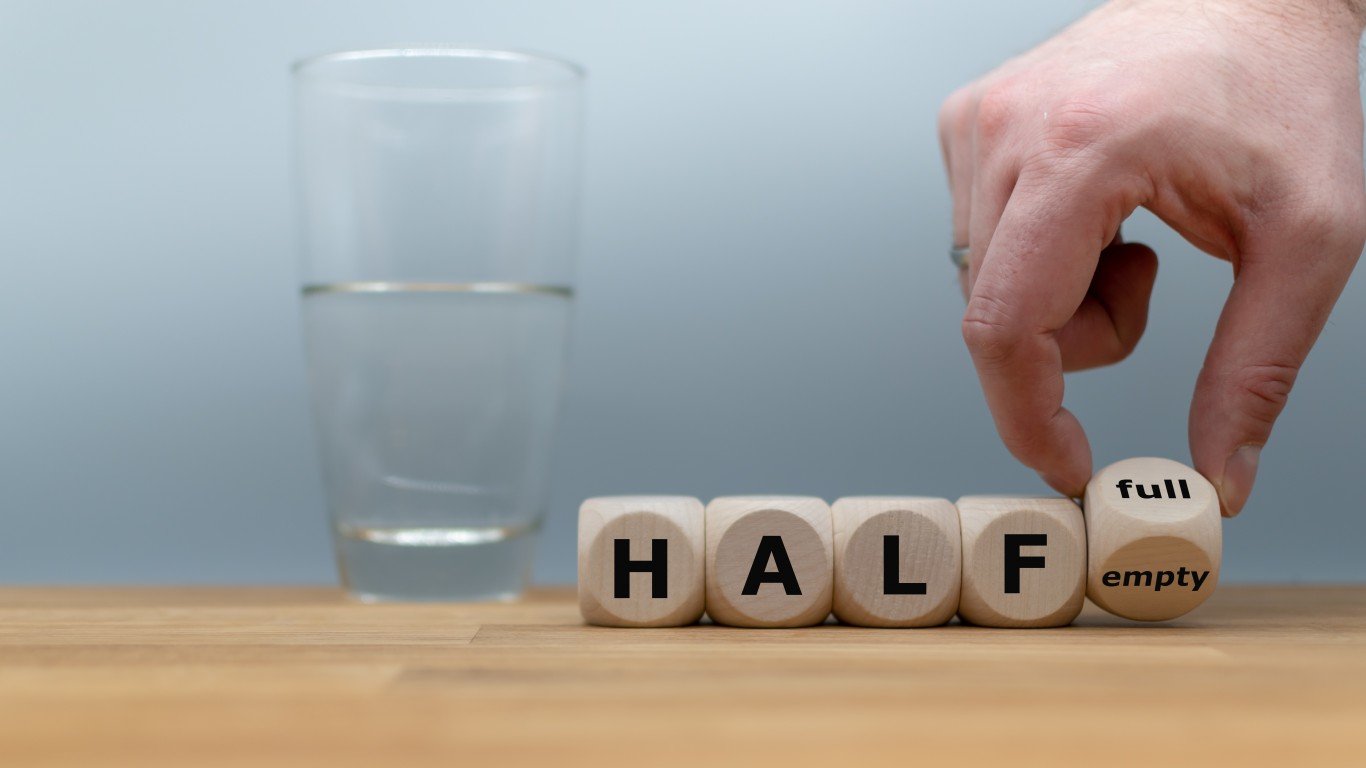
Look at the glass half full
Fight negative thoughts with positive ones. Try to always look at the bright side. By following negative thoughts with positives ones, you are training your brain to relax, increase positive emotions, and build happiness. A study by the University of Wisconsin-Madison found that simply perceiving stress as a good thing can reduce its negative effects. Data from the 29,000 study participants showed that those who took stress in stride were healthier.
[in-text-ad-2]

Embrace imperfection
Imperfection allows people to embrace who they are and the possibility of improving. You can see imperfections as mistakes, as chances to be creative, or as special qualities. Some experts even say that the pursuit of perfection may actually be the biggest obstacle to being happy. People become consumed with the fear of failure, leaving no room for positive emotions.

Go to the park every day
Achieving happiness can be as easy as a walk in the park…literally. So next time you need a little boost in mood, spend time outdoors. Spending time outdoors can also help lower blood pressure and heart rate. As little as 20 minutes will do the trick. Some research also found that green spaces are linked to a lower risk of developing a psychiatric disorder.
[in-text-ad]
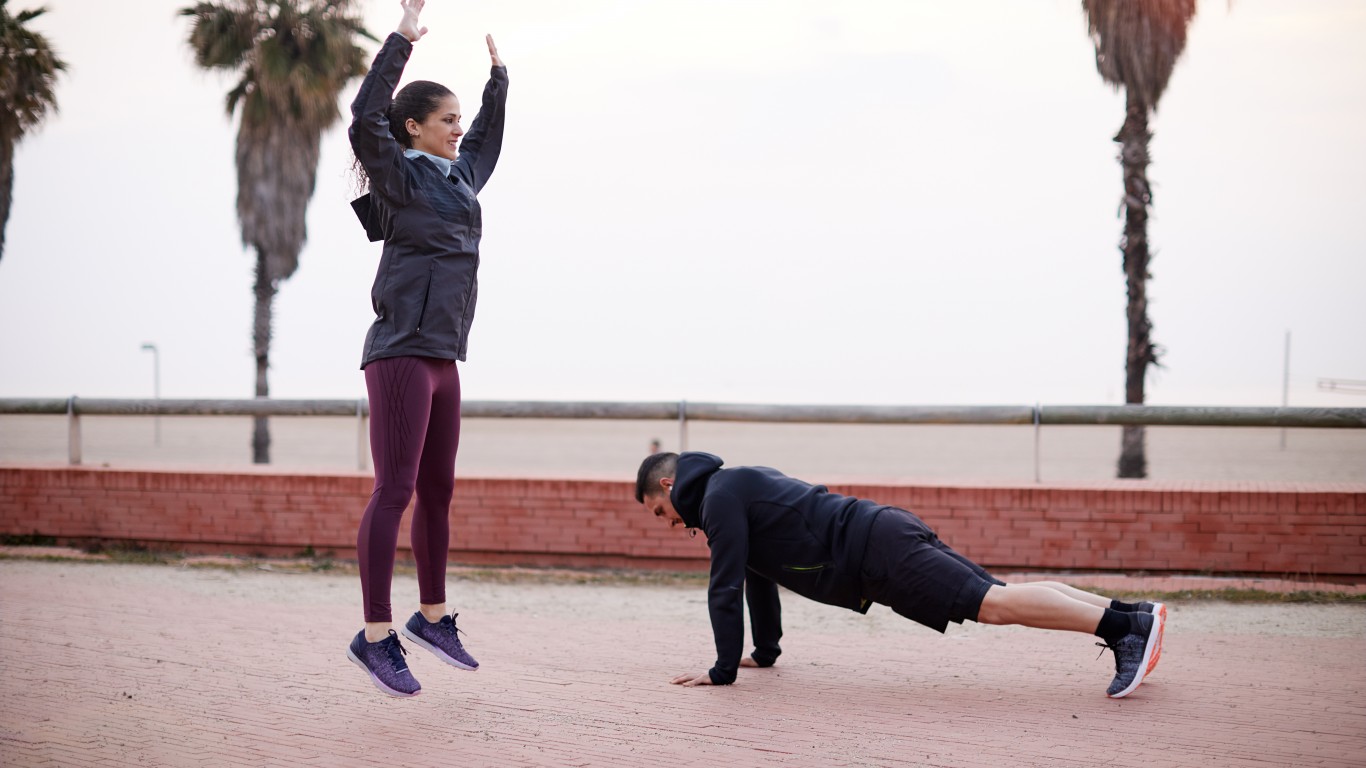
Exercise for 10 minutes
Most people have heard of “runners’ high.” This high applies not only to runners, but to all people engaged in a physical activity. During exercise, the body releases endorphins, which trigger a positive, happy feeling, just like morphine. Some research suggests that even just 10 minutes of exercise is enough to induce feelings of happiness. People who exercise about 10 minutes a day are more cheerful than those who never exercise. Physical activity can help protect against depression regardless of age and geographical region, according to a study published in the American Journal of Psychiatry.
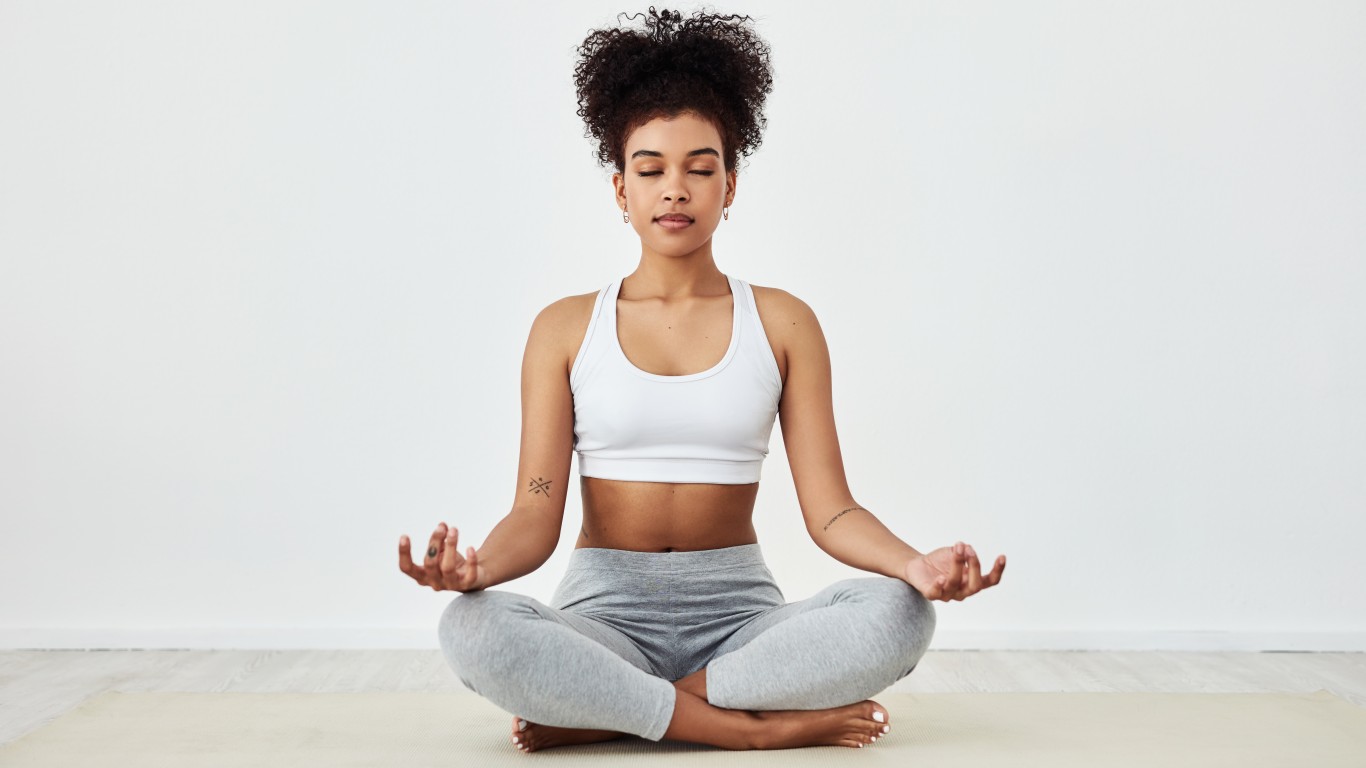
Meditate
Meditation has been associated for a long time with physiological benefits such as lowering blood pressure and helping to ease migraine headaches. Some studies have found that meditation has certain cognitive benefits as well, such as preventing brain cells from dying, helping people focus, and dealing with stress. Meditation helps reset the happiness point in the brain, rewiring major parts of it.
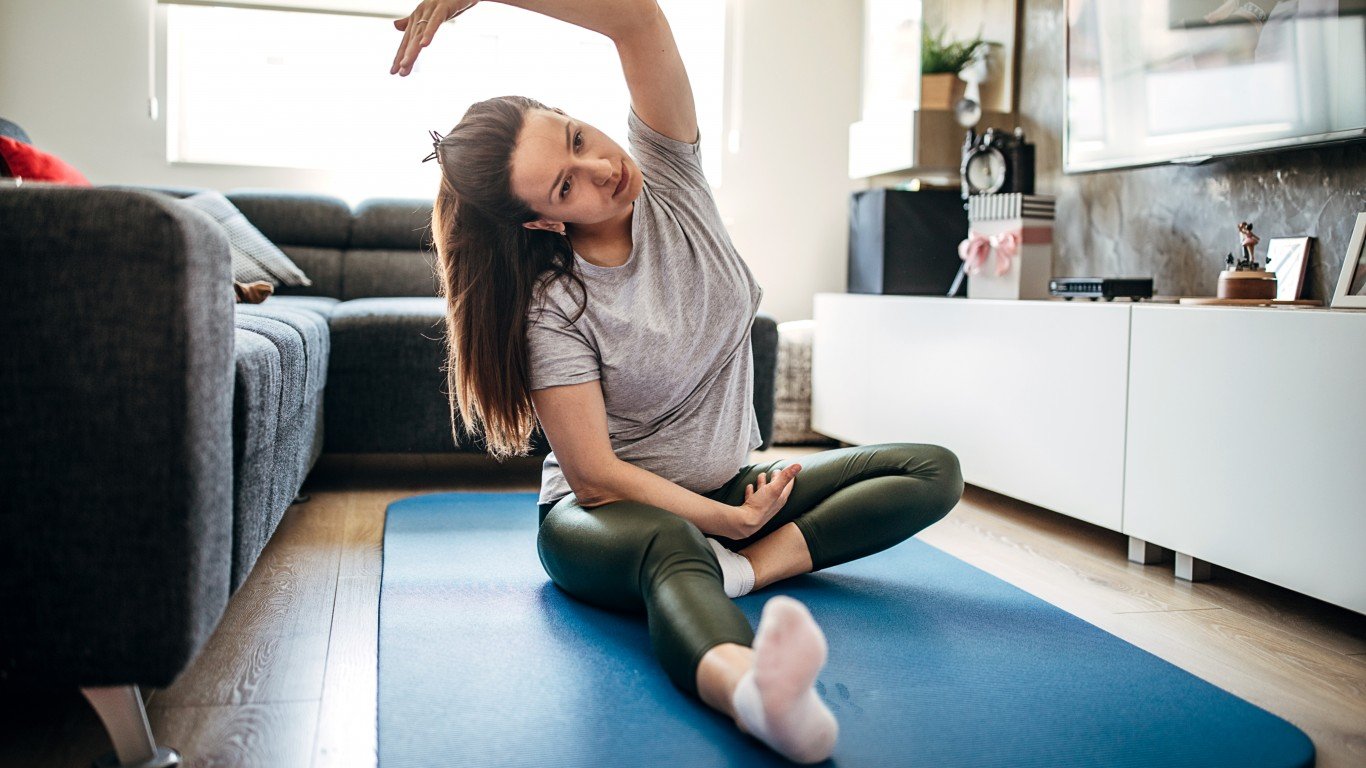
Turn TV time into fitness time
It’s easy to be lazy as we stay home during the pandemic because we can’t go to the gym and instead spend days and nights binge-watching television series. You can use this time at home to work out and still watch your shows. Work out during commercials and do stretches or jumping jacks. Instead of munching on a snack, do some pushups. If you have to watch your show through the credits crawl, do some sit ups. Exercise while watching replays of great games of the past by running in place.
[in-text-ad-2]
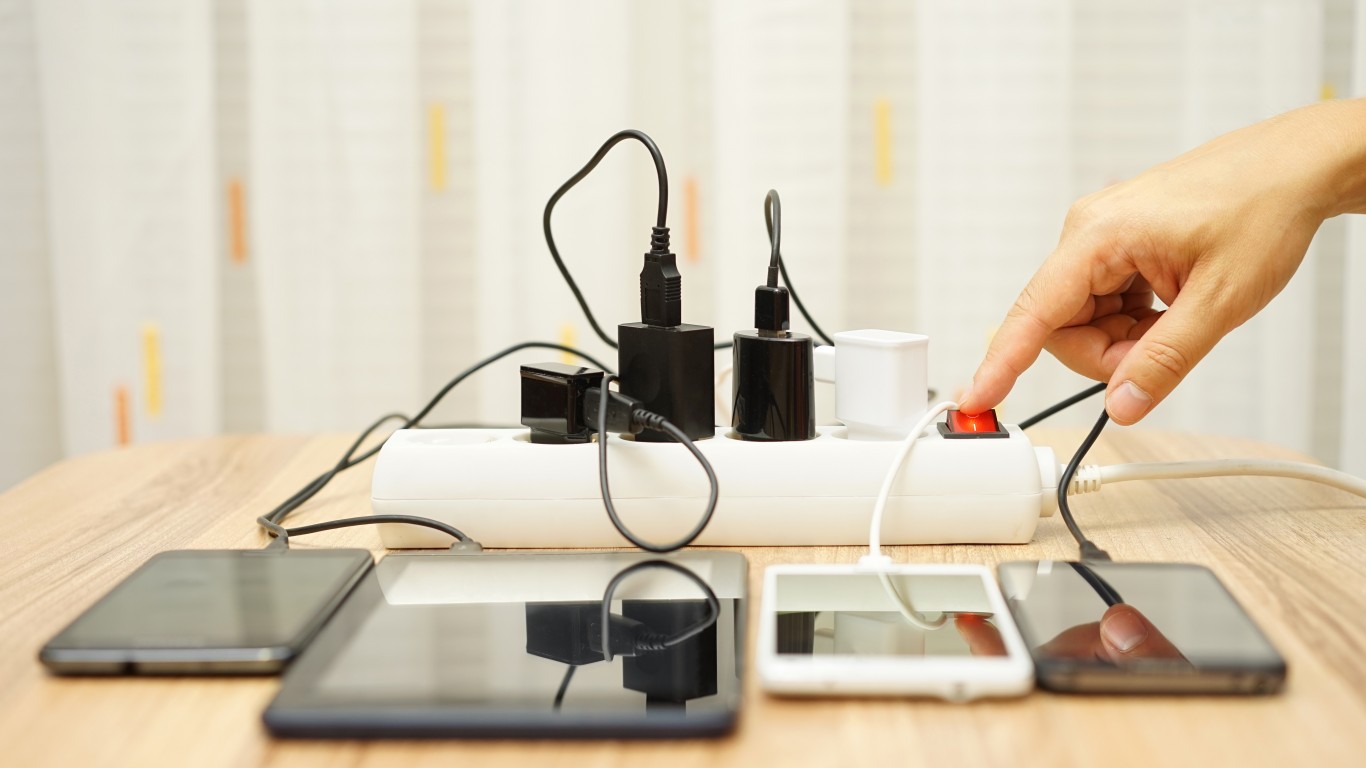
Turn off tech
Technology has become an addiction. A Pew Research study found that 84% of cell phone users say they can’t go one day without their device. It stems from FOMO — the fear of missing out — a psychological condition connected with our need to be connected to our devices. To keep from being ruled by your devices, start your day without going on your phone. Power down your phone for a brief period, say lunch or dinner, and do so on a regular basis. Use tools available on the internet to block distracting websites, and manage your time more wisely.

Get rid of clutter
Clutter has been associated with a range of unhealthy behaviors. It is linked to problems with decision making and executive function. Clutter distracts by focusing one’s attention on something else and by providing too many stimuli, making it difficult to relax. Research has shown that people can get emotionally attached to objects just by holding them too often or keeping them around for a long time, resulting in clutter.
[in-text-ad]
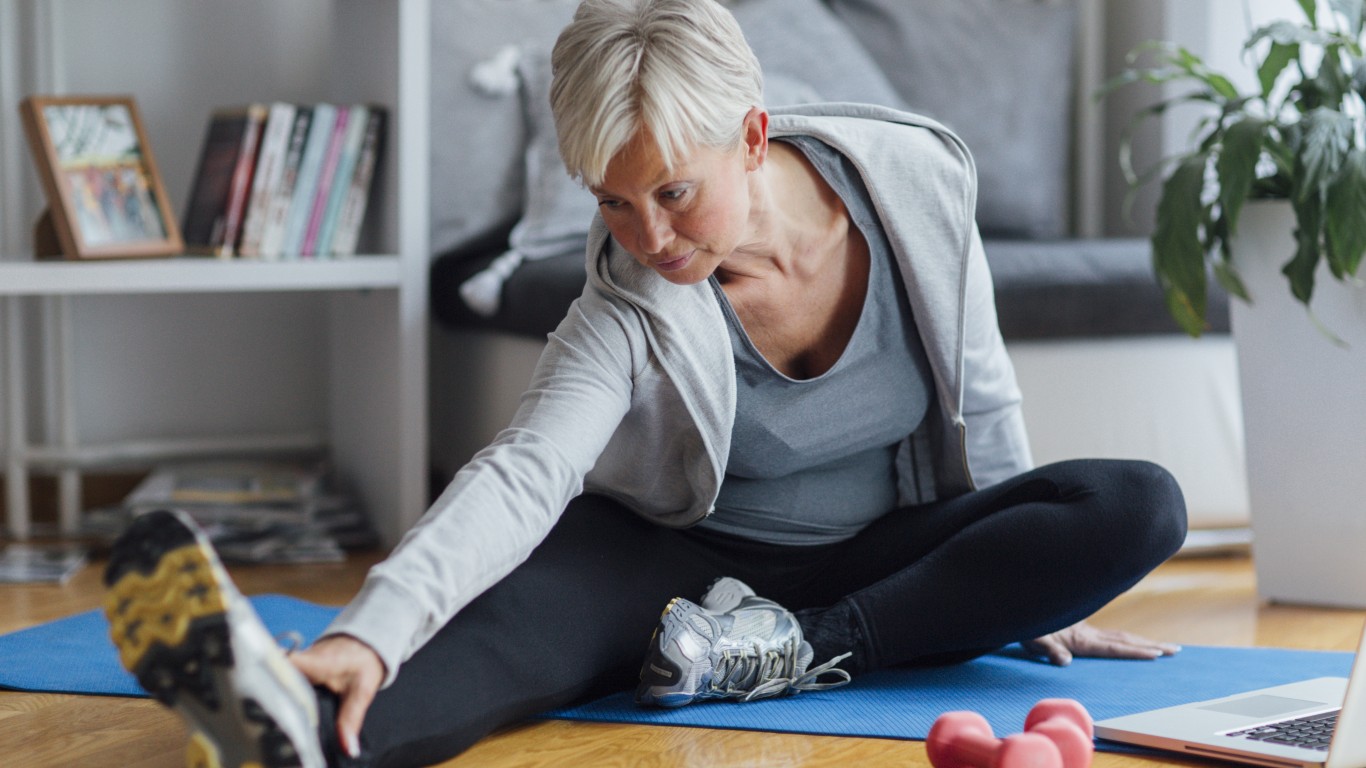
Stretch
The importance of stretching increases as we age because as we get older, our muscles get shorter and become less elastic. Doing strength training and cardio activity without doing stretches contracts the muscles and puts you at risk for strains. Stretching improves flexibility, helps reduce the risk of injury, gives you greater range of motion, and also improves your workout.
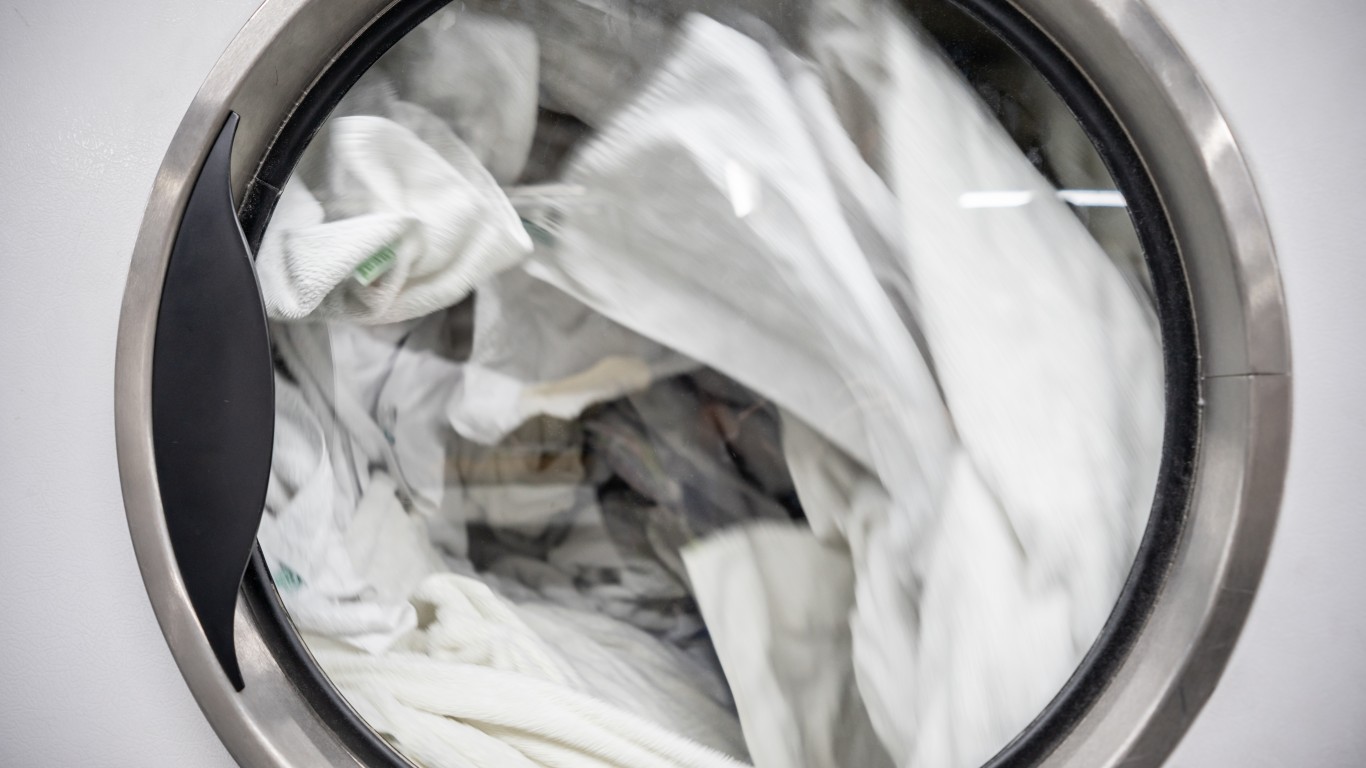
Wash the bedsheets at least once a week
Most people know they should be washing their bed sheets at least once a week. Sheets can accumulate dead skin cells, dust mites, and bacteria you can’t see. But after a while — usually about two years — bed linen fibers can start to break down and sheets may begin to tear. So before your sheets make you uncomfortable in bed, throw them out or, better still, donate them — even torn sheets can be recycled into rags or insulation.

Clean the AC air filter
Air filtration is often recommended for its clinical benefits, especially for people with seasonal allergies. Air filters prevent dust, pollen, dirt, and other pollutants from settling, thus reducing buildup. A poorly maintained filtration system, however, can become contaminated with dust, eventually worsening the air quality indoors. Basic air filters should be changed every three months, and every month or two if there are pets in the house. Some filters can be recycled so check with the manufacturer of your system.
[in-text-ad-2]
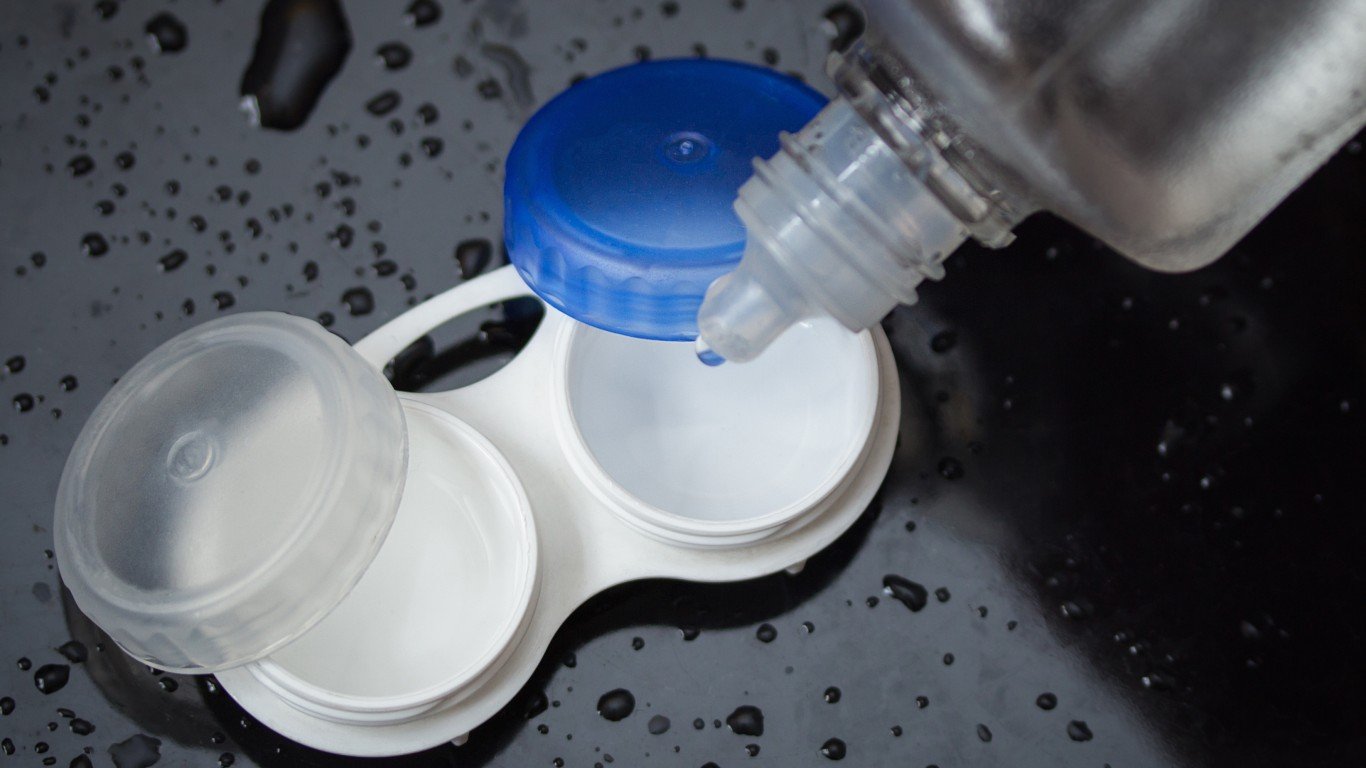
Change your contact lense case
You probably take very good care of your contact lenses — removing them every night (if they are that kind of lens) and cleaning them thoroughly before and after using them. But you should also do your due diligence when it comes to the lens case. The American Optometric Association recommends replacing lens cases once every three months. Otherwise, bacteria can form that cannot be cleaned with a disinfectant. Since they are made of plastic, most cases can be recycled.
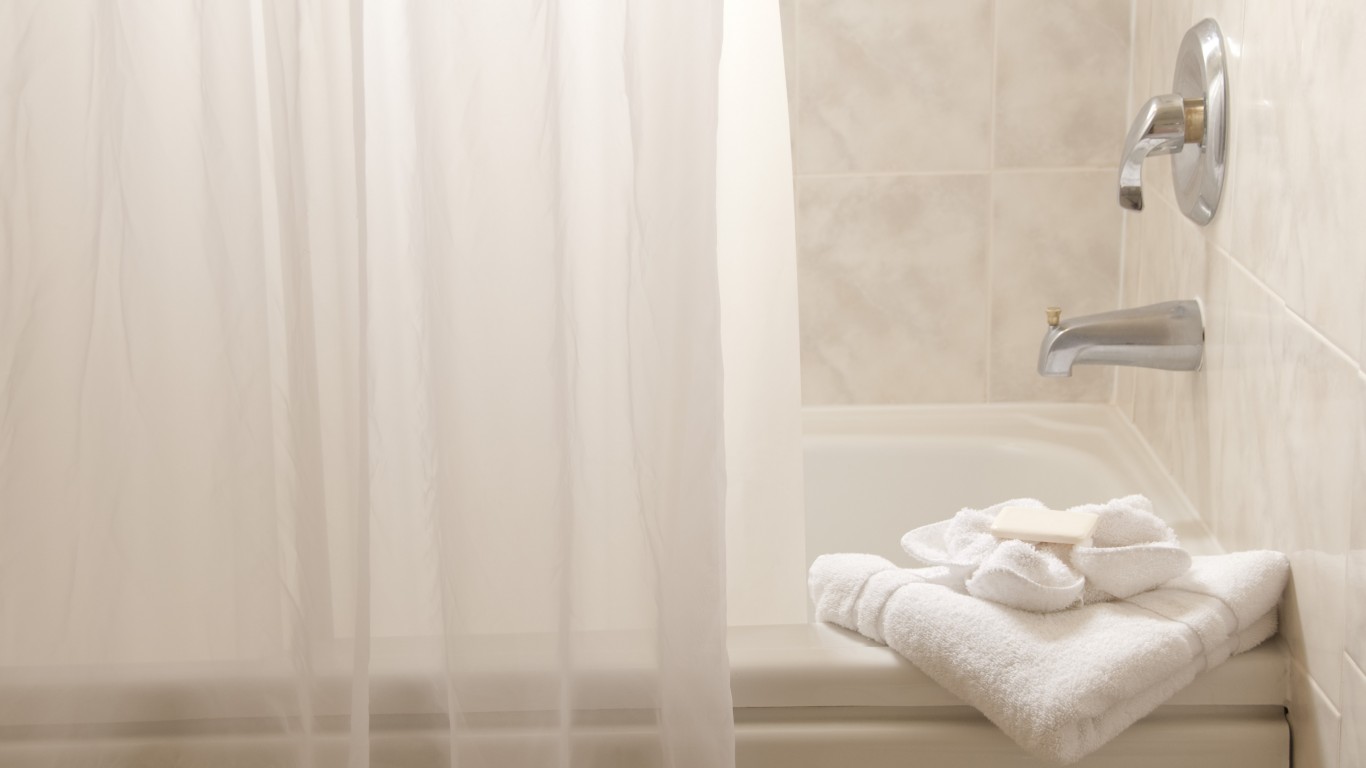
Clean the shower curtains
Shower curtains should be thoroughly cleaned at least once a week to avoid mildew, a form of fungus that can cause throat irritation and nasal problems like congestion and nosebleeds. If your shower curtains or linen get to a point where they look like they are decorated with polka dots, it’s time to replace them.
[in-text-ad]
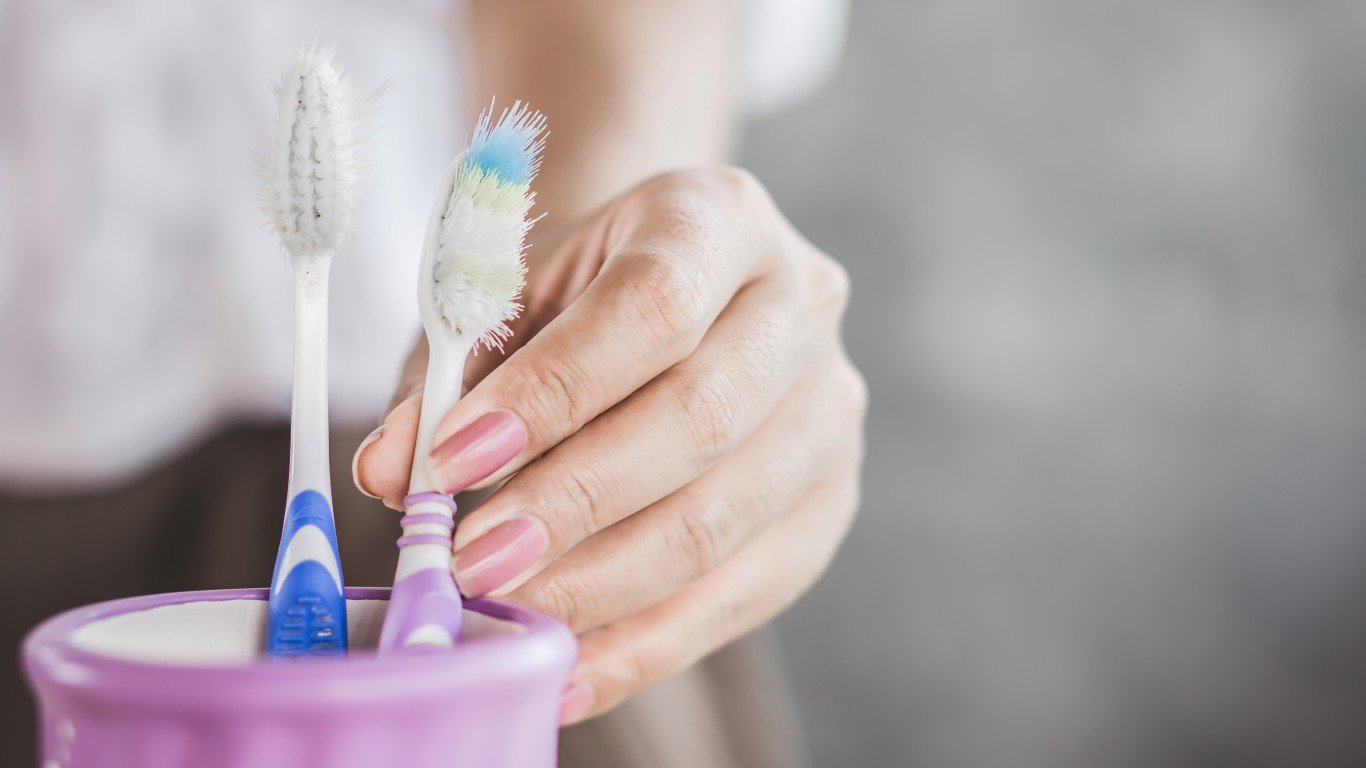
Get a new toothbrush
Toothbrushes should be replaced every three to four months, according to the American Dental Association. The bristles become worn out and a lot less effective. Let toothbrushes completely dry out after every use; otherwise, they can grow bacteria.
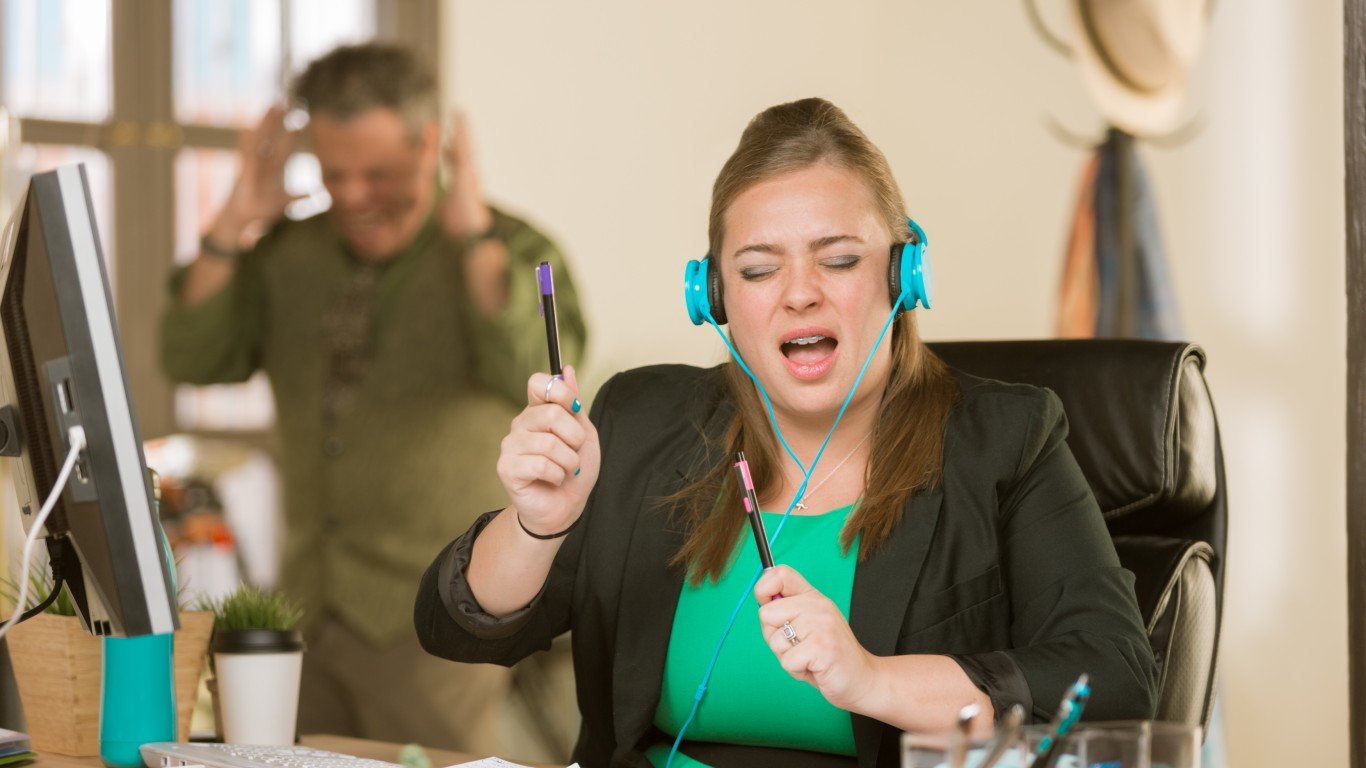
Keep the volume down
Lowering the volume is not done just as a courtesy to others, but it also has health benefits. According to reports by the World Health Organization, U.S. adolescents experienced a 31% increase in hearing loss — called cochlear damage — between 1998 and 2006. Hearing loss has also been linked to adversely affecting academic performance. Much of this hearing loss comes from sound heard through earbuds. If the sound emanating from earphones can be heard by others, then the volume is too loud.
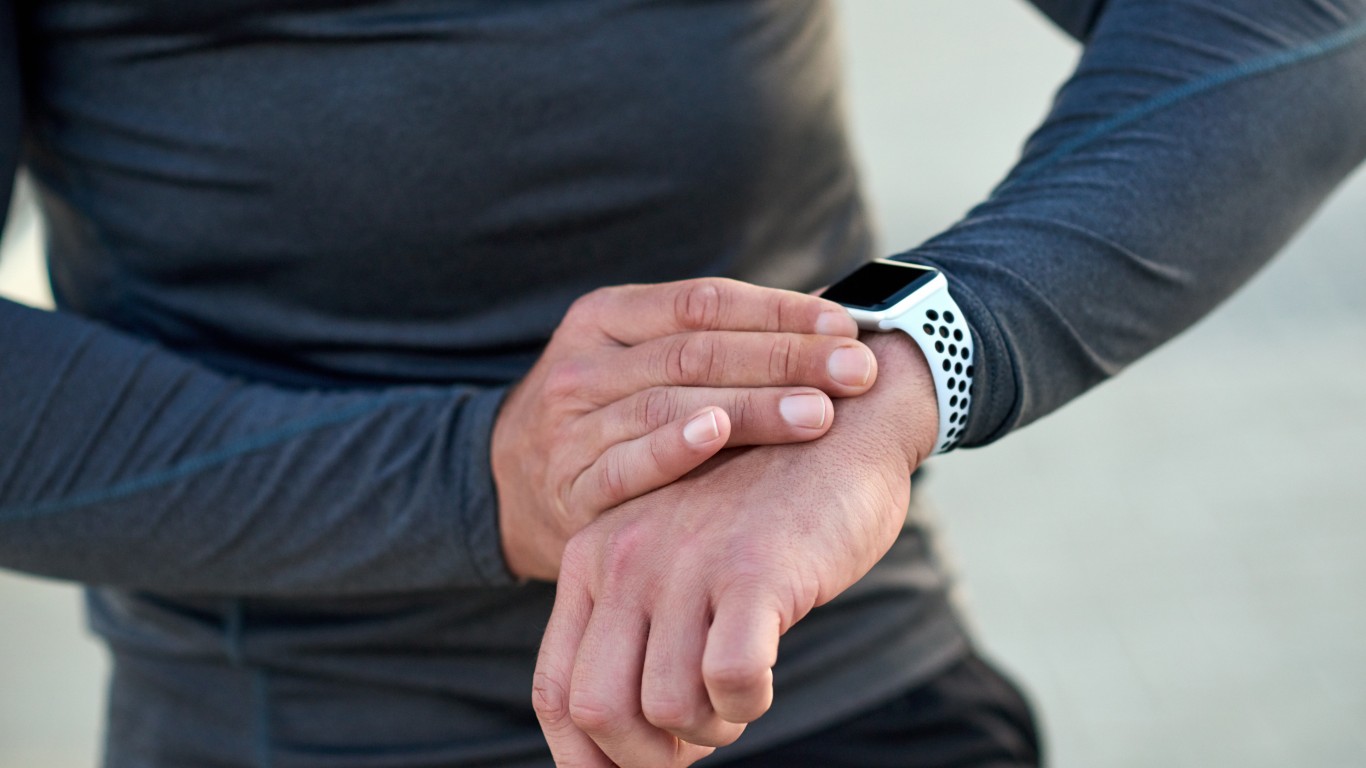
Wear an activity tracker
Activity trackers are wearable devices that record a person’s daily physical activity. These trackers compile data pertaining to a person’s health like calories burned, distance walked or run, blood pressure, and heart rate. Many companies have incorporated activity trackers as part of their businesses’ wellness plans. Glassdoor reported in 2017 that about 13 million wearable activity-tracking devices were going to be included in the company’ workplace wellness programs in 2018.
[in-text-ad-2]

Eat slowly
Eating slowly may help with digestion and weight maintenance, and may improve more enjoyment of meals. It also means more time for socializing with family and friends at the table. Studies have shown that those who eat more slowly eat less. Rushing through meals can leave you feeling unsatisfied and wanting to eat more.

Socialize
Socialization benefits include having more social support, possibly living longer, and feeling less isolated. Interactions with others reduces feelings of depression, and according to a study published by the National Library of Medicine, a socially active lifestyle might protect people against dementia. To boost social engagement, participate in online meetings with family and friends; do volunteer work; attend museums and concerts; go to the library or community centers; or play a group sport like bocce or bowling.
[in-text-ad]

Dance
Dancing is another way to socialize, and you don’t have to be a salsa or ballroom dancing pro to enjoy the benefits. As a cardio activity, dancing improves the condition of your heart and lungs; boosts muscular strength, endurance, and motor fitness; provides better weight management; reduces risk of osteoporosis; improves agility, flexibility, and balance; and lifts your confidence. Pick the right dance for you. Warm up and drink plenty of water before you get out on the dance floor, and don’t overdo it.
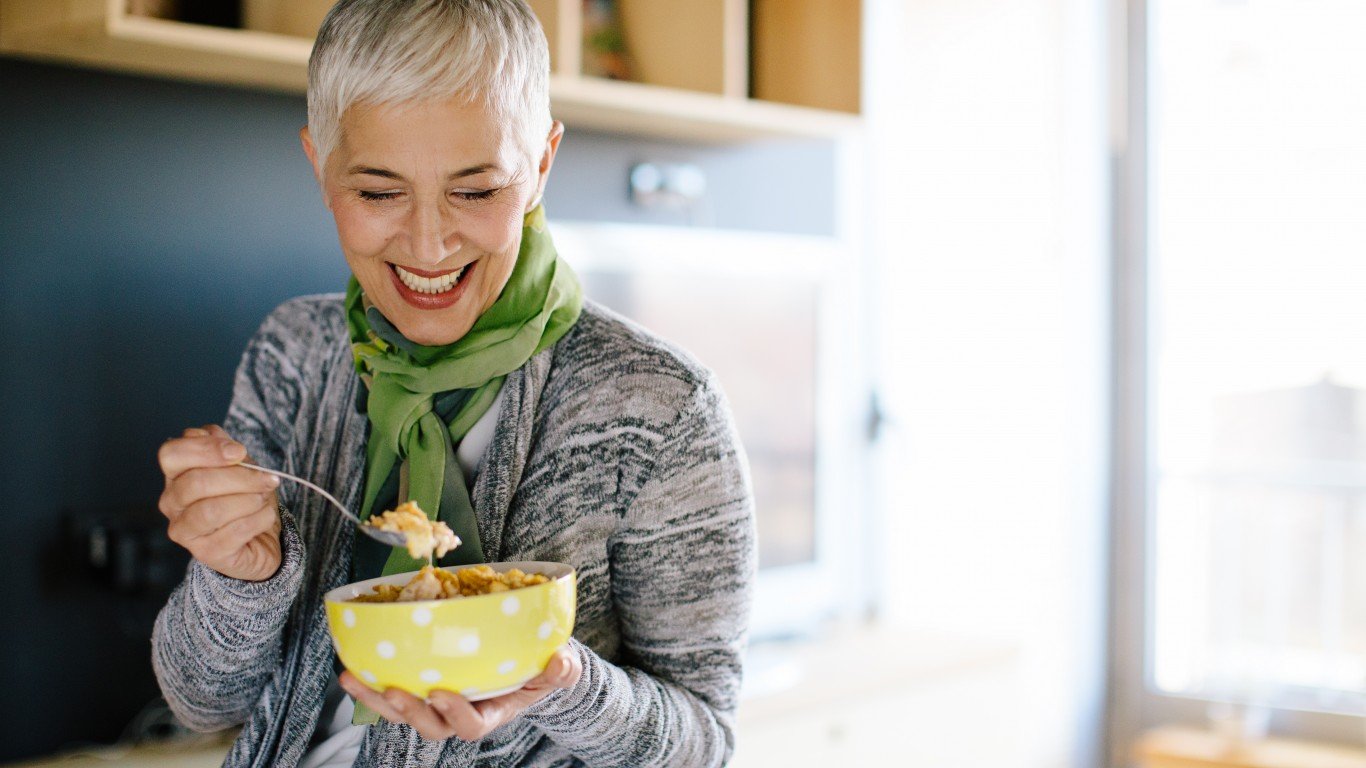
Eat breakfast
Breakfast has been called the most important meal of the day. According to WebMD, for breakfast you should pair carbohydrates with proteins. Carbs give you the energy boost and proteins provide the endurance. These combinations are suggested by WebMD: Whole-grain cereals or bread for carbs, low-fat milk, yogurt, or cottage cheese for protein; fresh fruit or veggies, for carbs, nuts or legumes for protein.
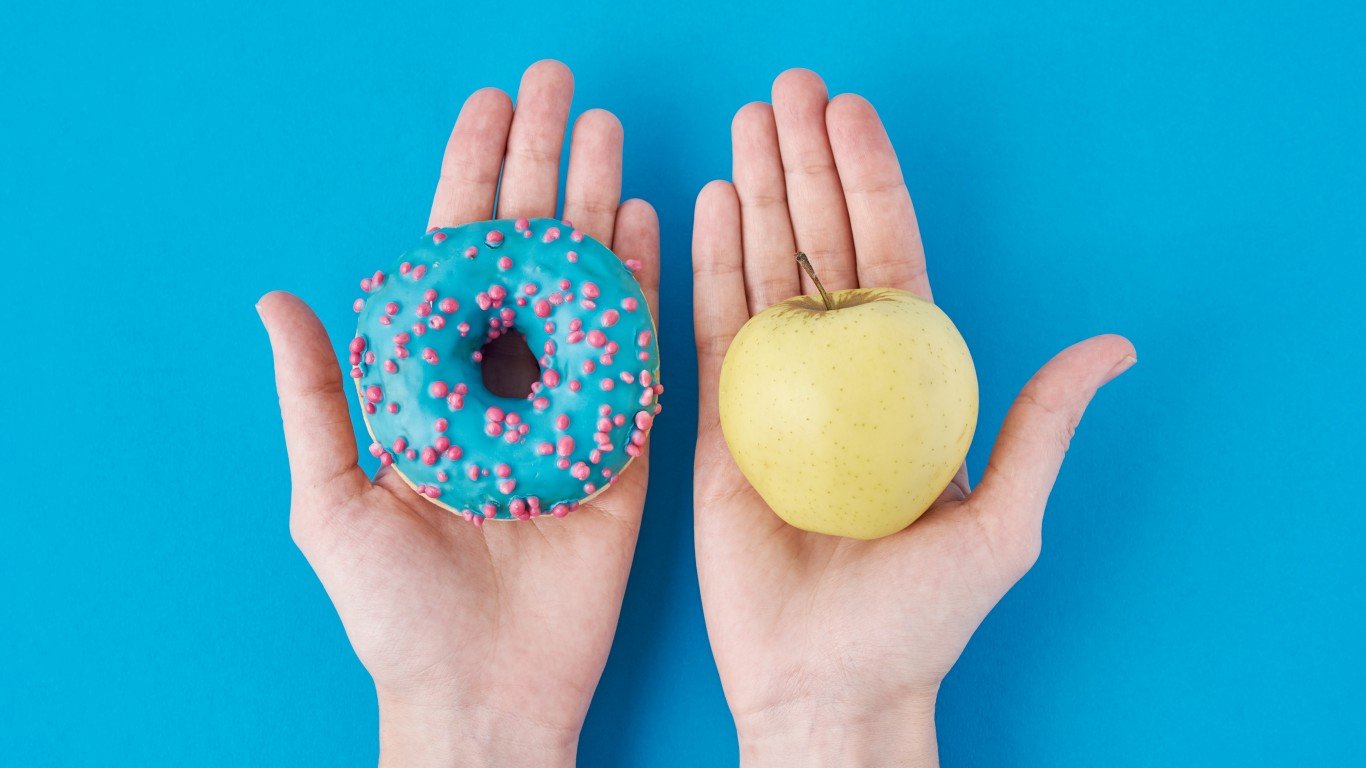
Limit simple sugars
Consuming too much sugar can lead to a greater risk of weight gain, diabetes, tooth decay, and other health problems. Even healthier food options like dairy items, vegetables, and fruit naturally contain sugar. The average adult in the United States consumes around 308 calories per day from added sugar, more than the American Heart Association’s (AHA) recommendations, which is 100 calories from added sugars for females and 150 calories for males.
[in-text-ad-2]

Think positively
Cleric Dr. Norman Vincent Peale was on to something when he wrote the best-selling book “The Power of Positive of Thinking” in 1952. Positive thinkers have longer lifespans, lower rates of depression, reduced risk of death from cardiovascular disease, greater resistance to colds, and coping mechanisms during stressful periods. Positive thinkers are also inclined to live more healthy lifestyles, exercising more, eating more healthy foods, and not drinking or smoking excessively.

Surround yourself with happy people
Happiness may be contagious. So spend time with people who are positive and make you happy. Research by experts from Harvard Medical School and the University of California San Diego found that those who were around cheerful people were happier themselves and were in a better mood.
[in-text-ad]
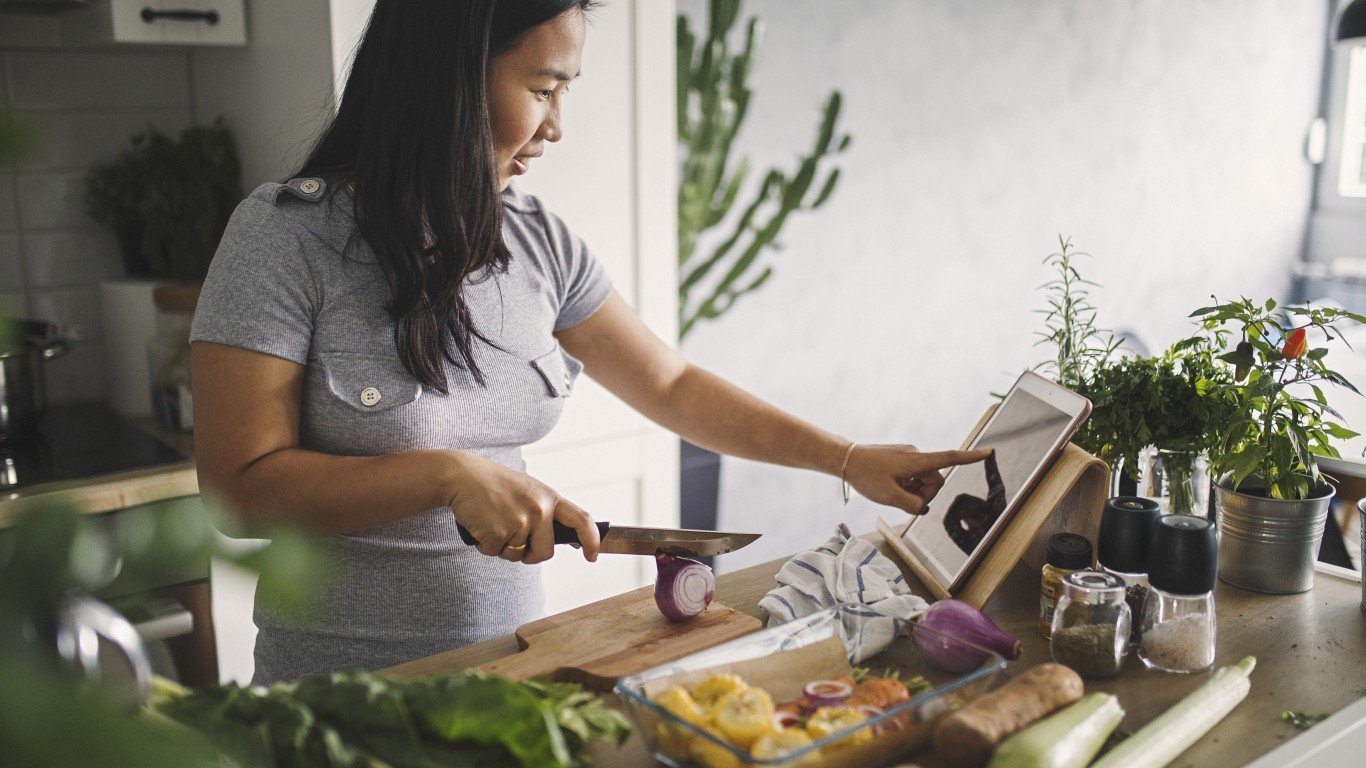
Cook
A study involving 9,000 people published by Public Health Nutrition in 2014 found that those who cook at home often consume fewer calories than those who don’t cook as frequently. When you cook at home, you are using fresher ingredients, vegetables, and fruits, rather than consuming pre-made meals and processed food tend to be higher in calories, sodium, sugar, and fats. Learn how to cook fish, make soups, and how to choose healthier food options such as chicken over red meat and whole-grains over potatoes and white rice.

Smell citrus fruits
There are large and small ways of dealing with stress. Some methods are as simple as using your sense of smell. The smell comforts through stimulation of the sensory system. Some research in people suffering from depression found citrus fragrance to be somewhat effective.

Look at old photos
Some research has shown that nostalgia increases self-esteem. Reliving the past, with happy memories and experiences, may be positive to self-regard. Even though nostalgia can have a sad side, such as evoking bittersweet and sad emotions, the sense of continuity and meaning in one’s life is often the stronger emotion. That’s why nostalgia has been shown to offset loneliness, boredom, and anxiety.
[in-text-ad-2]
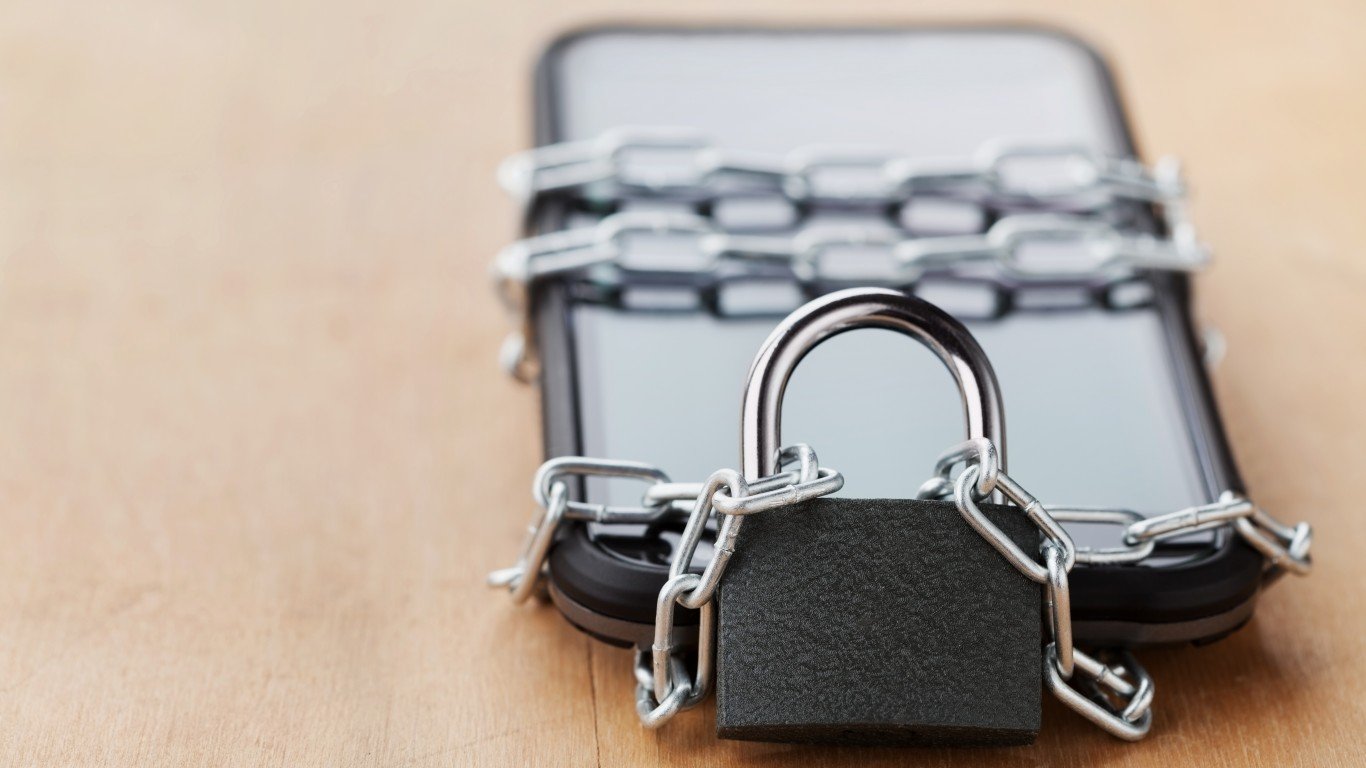
Go on a social media hiatus
In addition to the physical benefits, which include giving your neck and eyes a break from staring at your phone all the time, avoiding social media may benefit your mental health as well. Social media can increase stress levels by heightening awareness of stressful events in others’ lives, according to a Pew Research Center survey of 1,800 people. Women using social media report being more stressed than men.
Psychologists estimate that up to 10% of Americans meet the criteria for social media addiction, which is defined as being excessively concerned about social media, having an uncontrollable urge to use it, and spending so much time on it that other parts of one’s life are affected. The average smartphone user checks Facebook 14 times a day. And that’s just one social media platform.
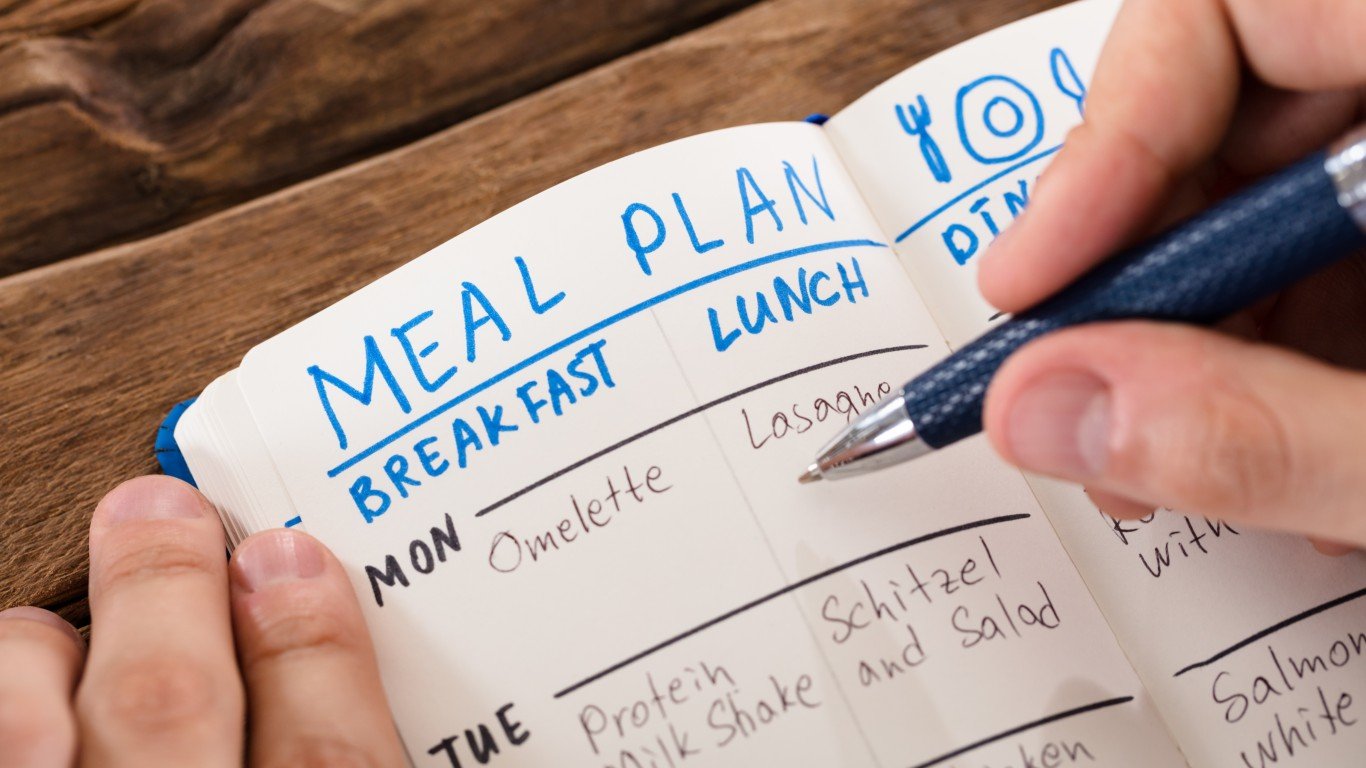
Don’t skip meals
Some people will skip meals as a weight-saving measure. However, health experts say skipping meals increases the likelihood of overeating later. Sometimes we make unhealthy food choices when we skip meals because we are hungrier than usual and overeat.
[in-text-ad]
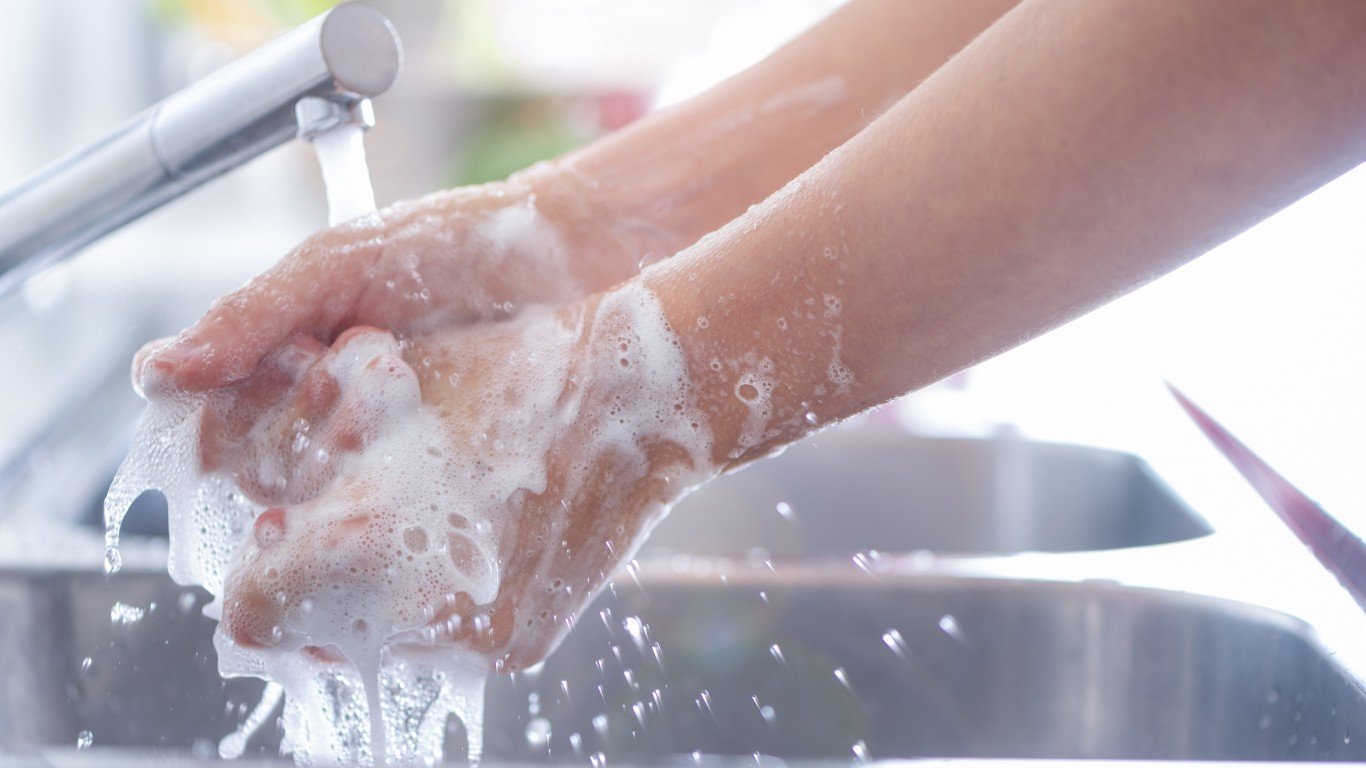
Wash your hands
Among the lessons we’ve learned from the COVID-19 pandemic is the importance of washing our hands. Handwashing with soap removes germs and helps prevent infections. Infections can be transmitted by people touching an infected surface and then touching their eyes, nose, and mouth without realizing they are doing so. Germs from unwashed hands can get into food and drinks from those who handle and prepare them. Germs can be found on commonly touched items — handrails, table tops, or toys to name a few — and can be transmitted to another person by a handshake. Handwashing helps prevent diarrhea and respiratory, skin, and eye infections.

Wear sunscreen regularly
Not wearing sunscreen regularly is one of the most common mistakes Dr. Heather Richmond, a dermatologist at the Dermatology and Laser Surgery Center in Houston, sees. “Wearing a daily sunscreen is the most important thing you can do to slow down the aging process,” Richmond told 24/7 Tempo in an interview. Also, sunscreen blocks harmful UV rays, significantly reducing the likelihood of sunburn and skin cancer.
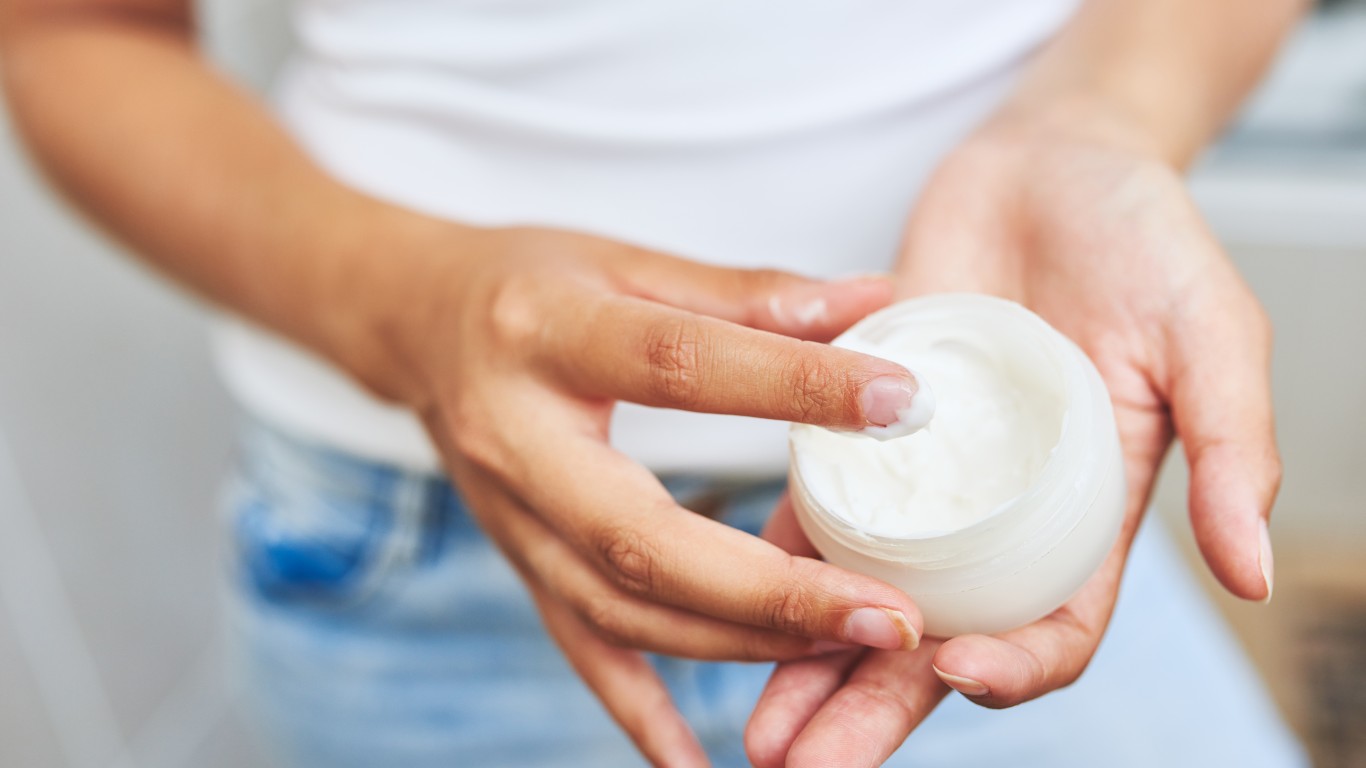
Moisturize regularly
“Many patients, particularly men, do not moisturize their skin regularly,” Richmond said. “Yet they frequently complain of flaking and itching.” Dry skin, especially if not taken care of, may lead to eczema, which can cause redness, cracking, and inflammation. “Use a gentle soap and moisturize daily after the shower for dramatic improvement in these symptoms.”
How often you should moisturize depends on your skin type and oil production, she noted. As we age, we don’t produce natural oils as well and skin begins to dry out. “Older patients will need to moisturize more often than younger patients and generally will need to use a heavier cream.” Younger patients tend to be acne prone and will need a lighter, oil-free moisturizer. “I generally recommend moisturizing at least once per day, but some patients may need to moisturize several times per day, particularly those who are very dry or prone to eczema,” Richmond said.
[in-text-ad-2]
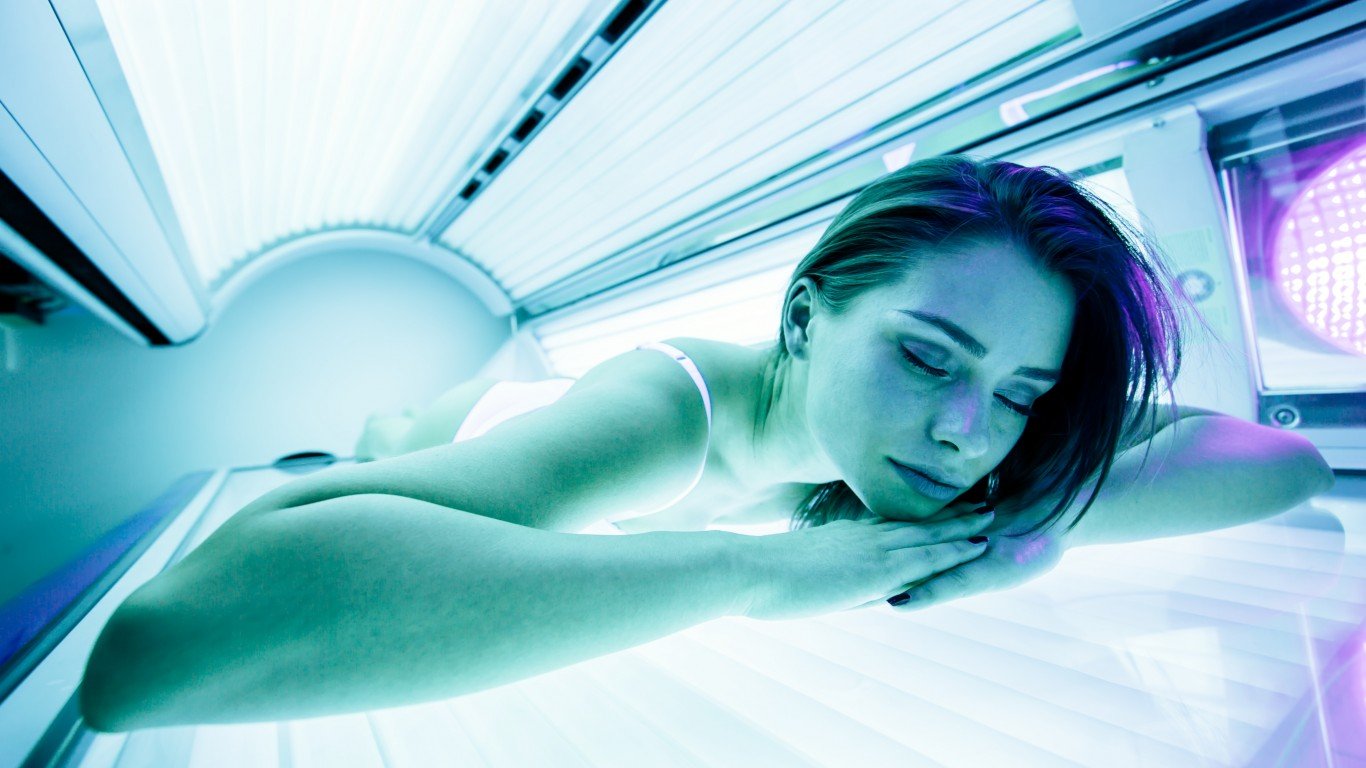
Forget about tanning beds
Actively tanning, especially in tanning beds, is the most serious mistake you can make to hurt your skin, according to Richmond. Tanning is significantly linked to the development of all skin cancers, including melanoma, which can be deadly. “I am seeing much more melanoma and basal cell carcinoma in young women as early as their 20s and 30s who have a history of tanning.” In addition to increasing the risk of skin cancer, tanning dramatically accelerates aging of the skin, resulting in earlier wrinkles, uneven skin tone, persistent redness, and brown spots, Richmond added.
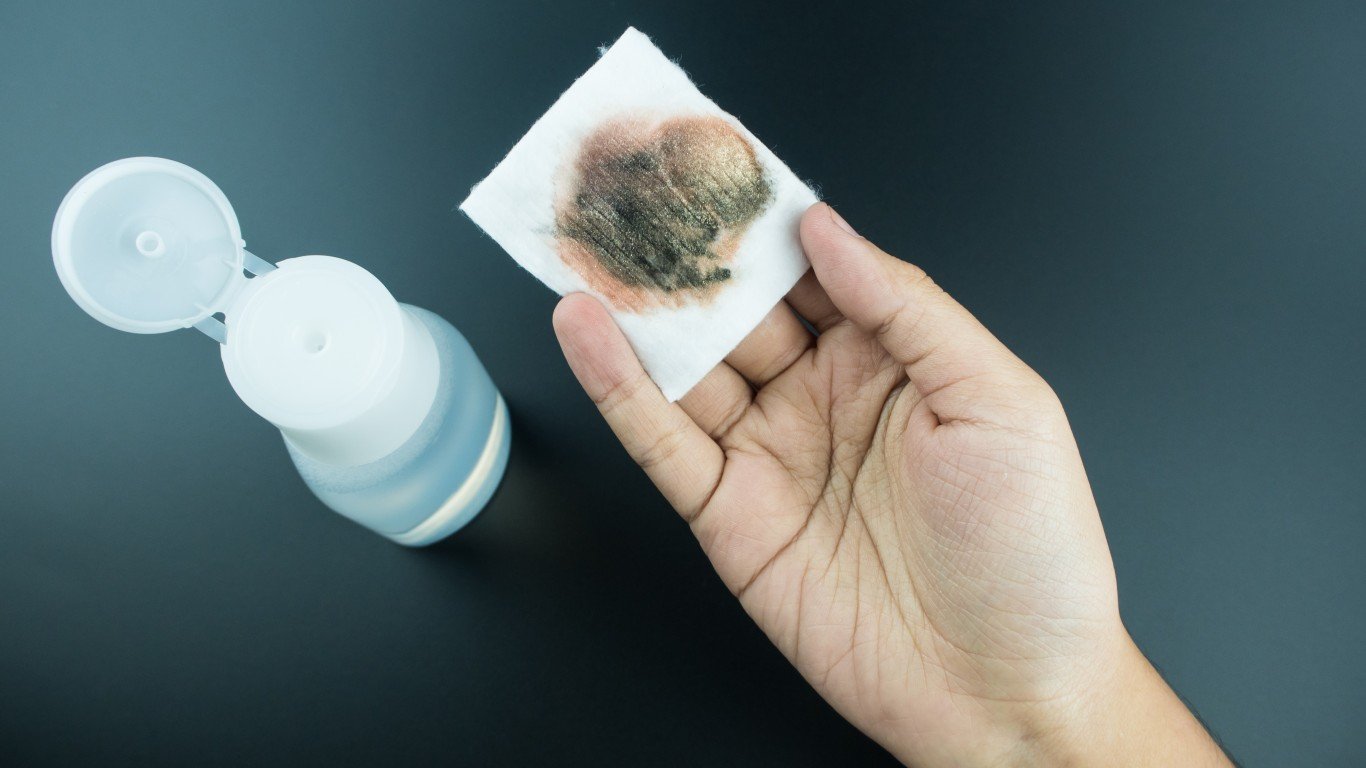
Always remove makeup before bed
Wearing makeup overnight can lead to eye irritation, infections, lash breakage, acne, and dry skin, among other problems. Free radicals can be trapped by makeup, leading to premature aging with prolonged exposure.
[in-text-ad]

Wear sunglasses and a hat
Hats are always helpful for protection of the scalp, face, and neck from the sun. “However, sunglasses are recommended as well since, depending on the angle, the eyes or areas around the eyes may not be in consistent shade, depending on which hat is used,” Richmond said. “In addition to protecting against fine lines around the eyes, sunglasses also protect the eye itself from sun damage, which can lead to [vision] changes,” she added.

Don’t sleep on one side
According to clinical psychologist Michael Breus, if you sleep on one side, you are more prone to developing wrinkles on your face. You also raise the possibility of disrupting circulation in your arm by sleeping on one side, which can cause you to wake up during the night. People who sleep on one side tend to shift more often, and that can result in less restful sleep.
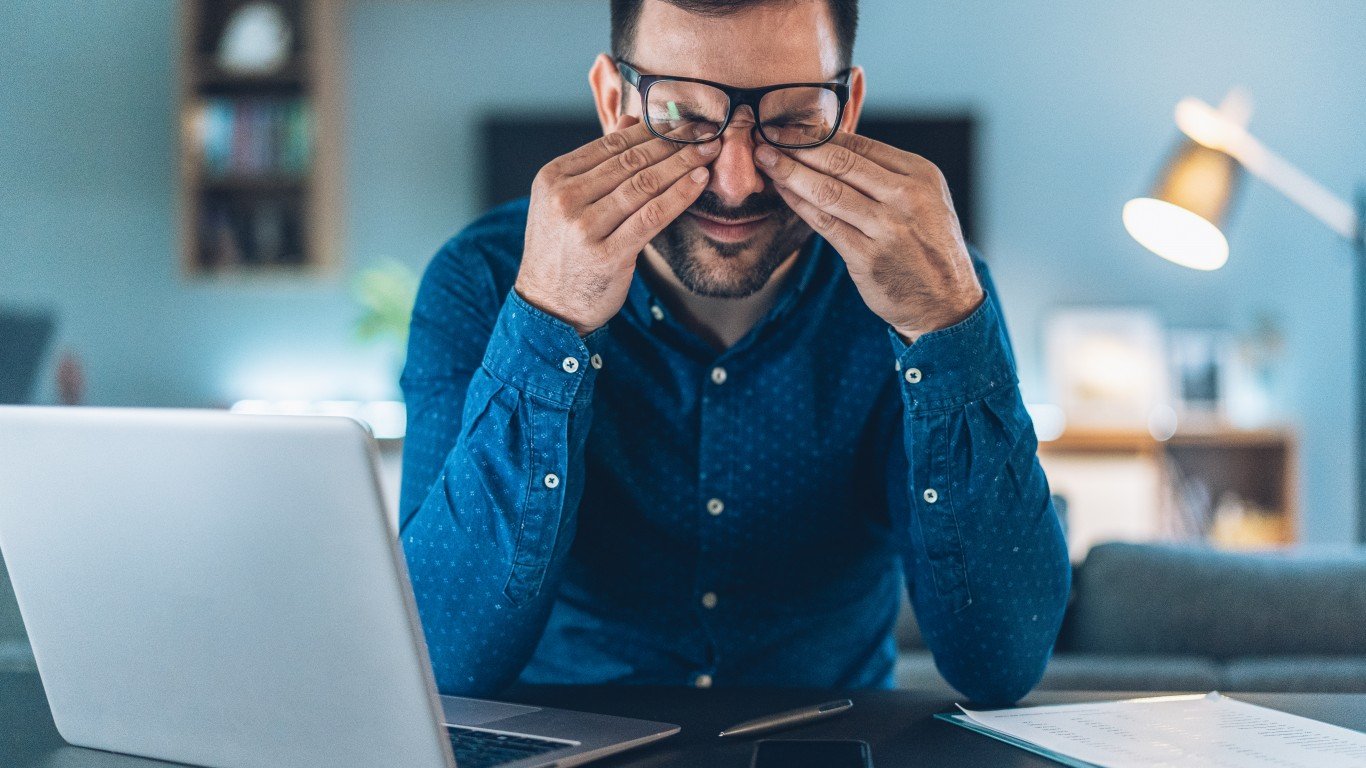
Stop rubbing your eyes
Rubbing one’s eyes is often a reaction to being tired. It’s almost instinctive. However, as is the case with most habits, it’s a problem when it’s chronic. The issue with rubbing your eyes all the time is that you’re rubbing the sensitive skin around them. It’s one of the places where aging signs first appear. The pressure applied to the skin can break small blood vessels, leading to the formation of dark circles and drooping eyelids.
[in-text-ad-2]
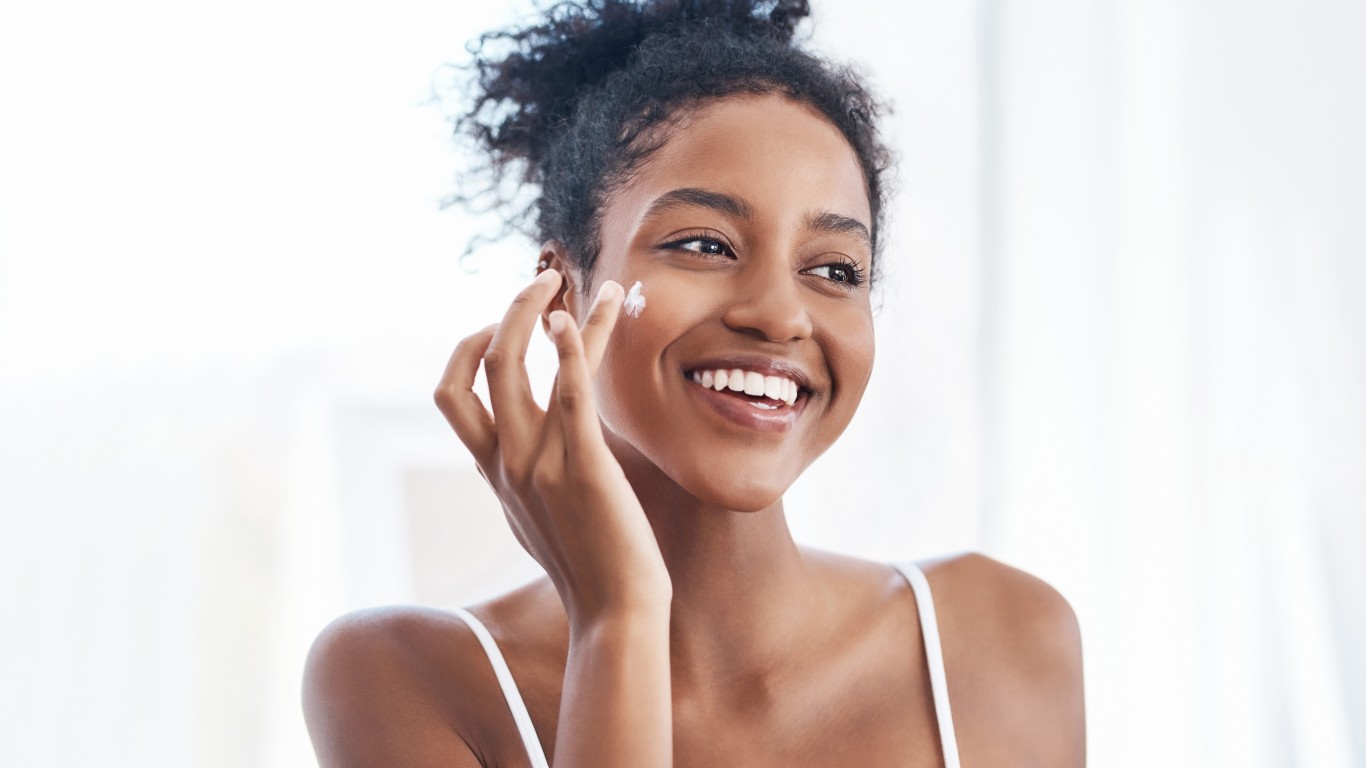
Use creams, not lotions
The skin’s natural oils act as barriers and keep water in, preventing the skin from dehydrating. Creams are far superior to lotions and do a much better job at protecting the skin because creams have more oils and lotions are mostly water, Intermountain Healthcare dermatologist Dr. Christopher English said.
Take This Retirement Quiz To Get Matched With An Advisor Now (Sponsored)
Are you ready for retirement? Planning for retirement can be overwhelming, that’s why it could be a good idea to speak to a fiduciary financial advisor about your goals today.
Start by taking this retirement quiz right here from SmartAsset that will match you with up to 3 financial advisors that serve your area and beyond in 5 minutes. Smart Asset is now matching over 50,000 people a month.
Click here now to get started.
Thank you for reading! Have some feedback for us?
Contact the 24/7 Wall St. editorial team.
 24/7 Wall St.
24/7 Wall St.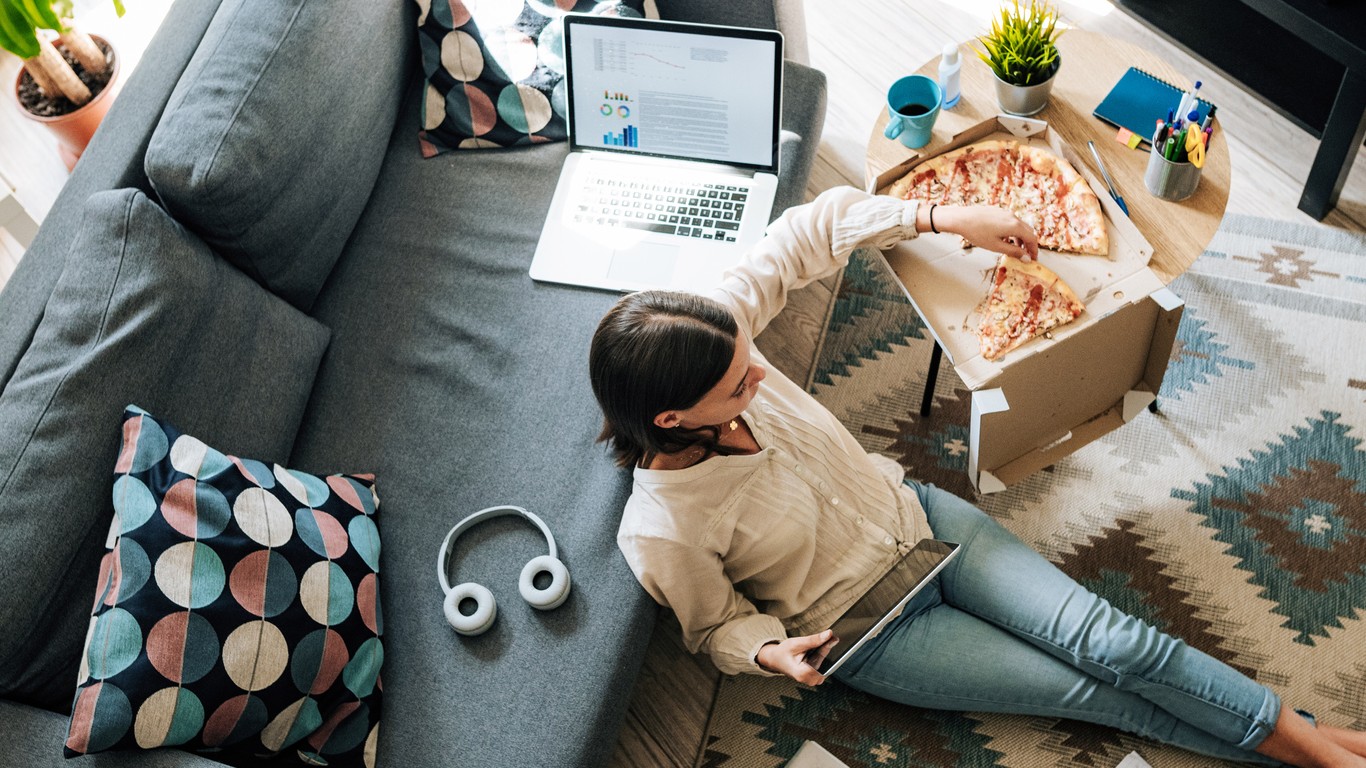 24/7 Wall St.
24/7 Wall St.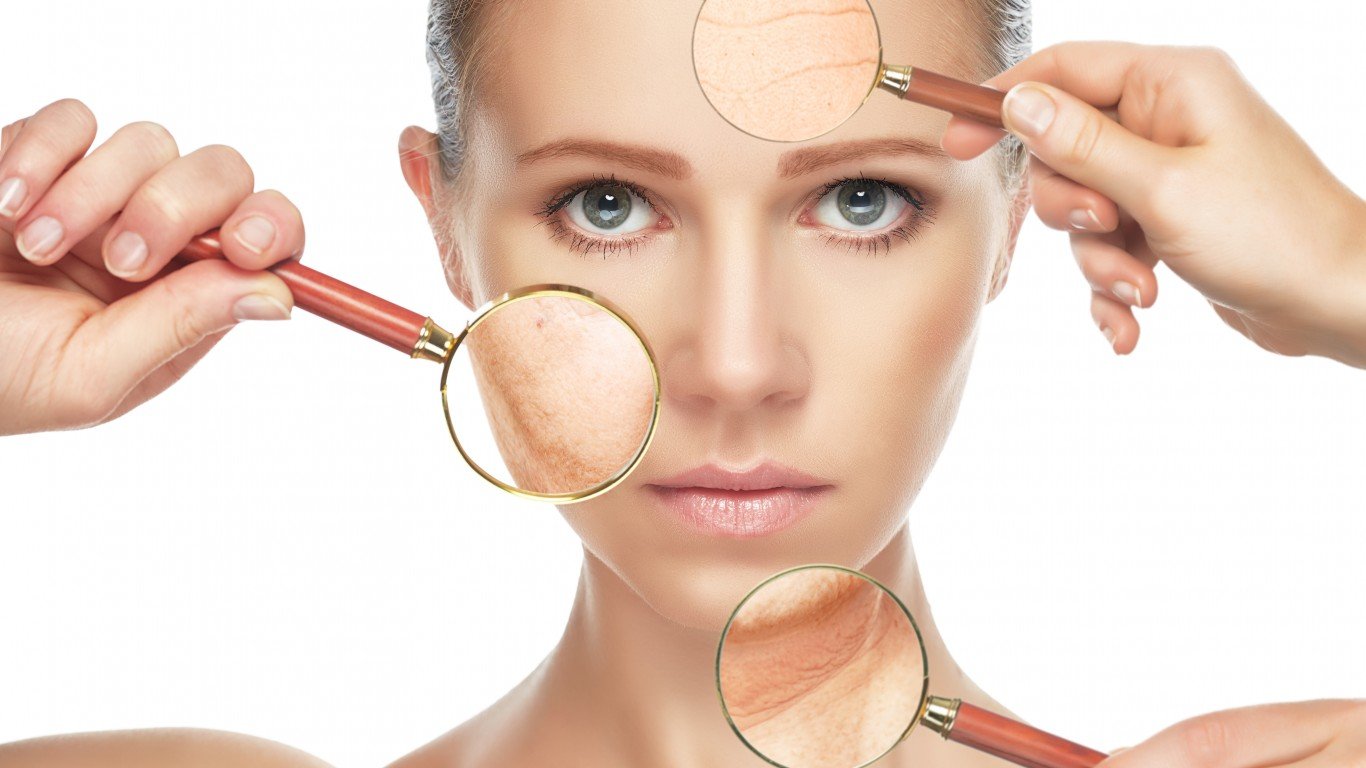 24/7 Wall St.
24/7 Wall St.